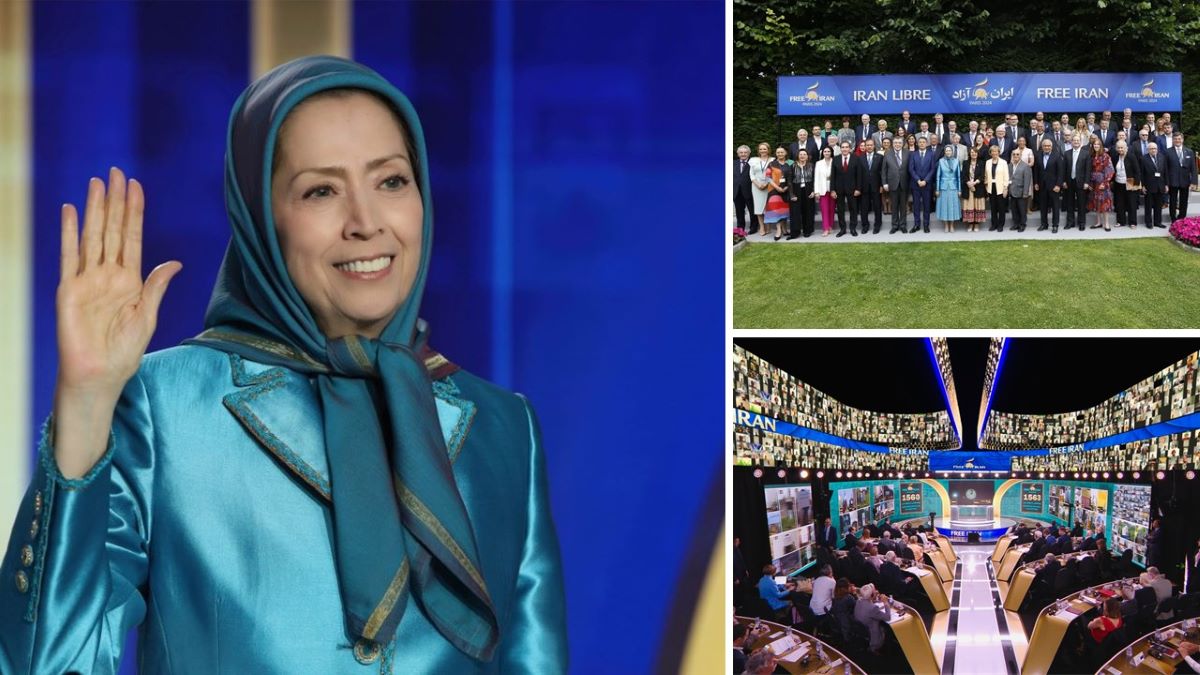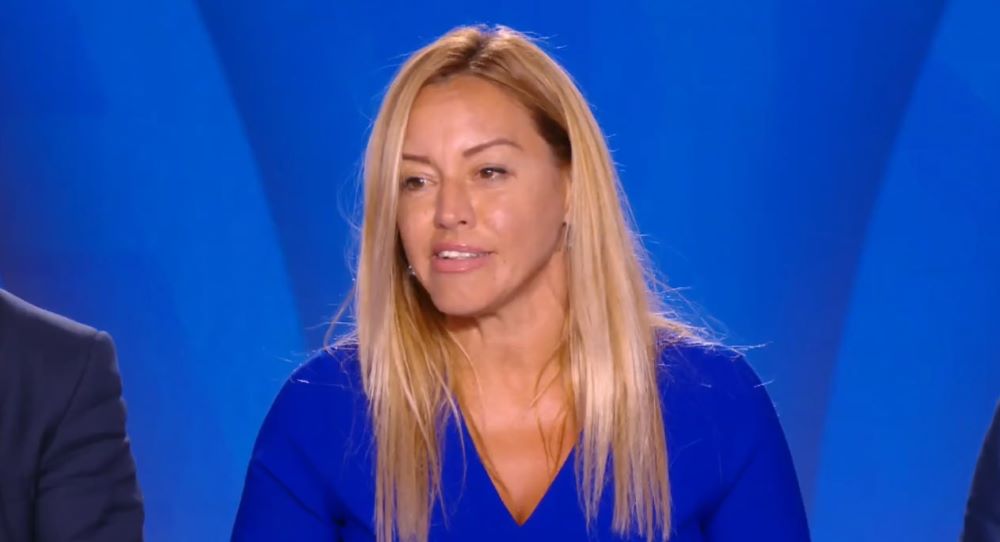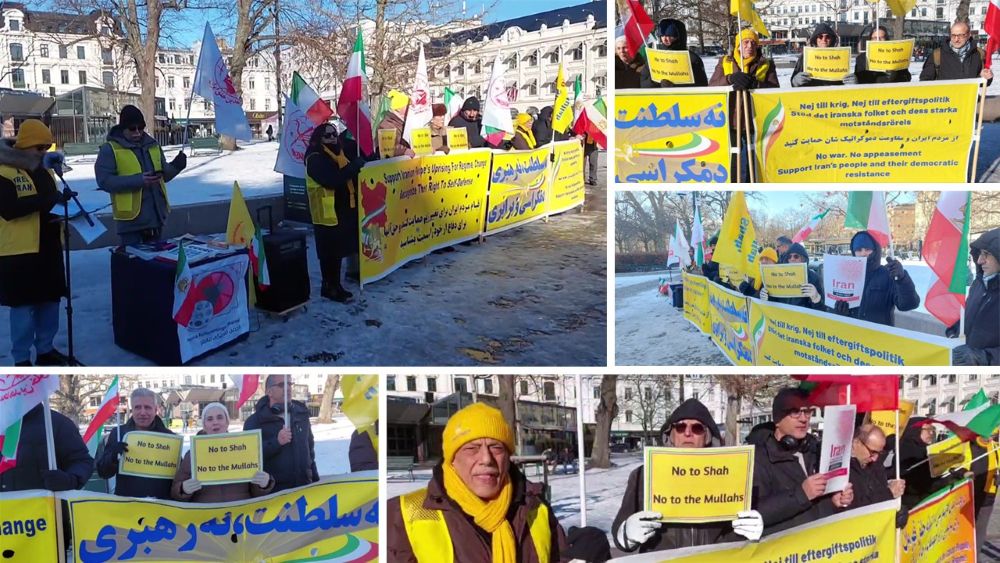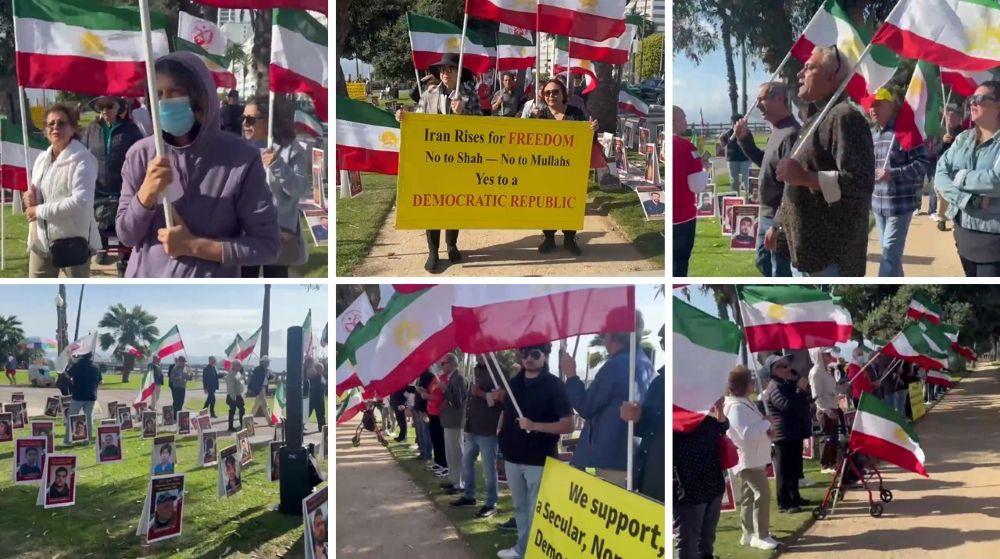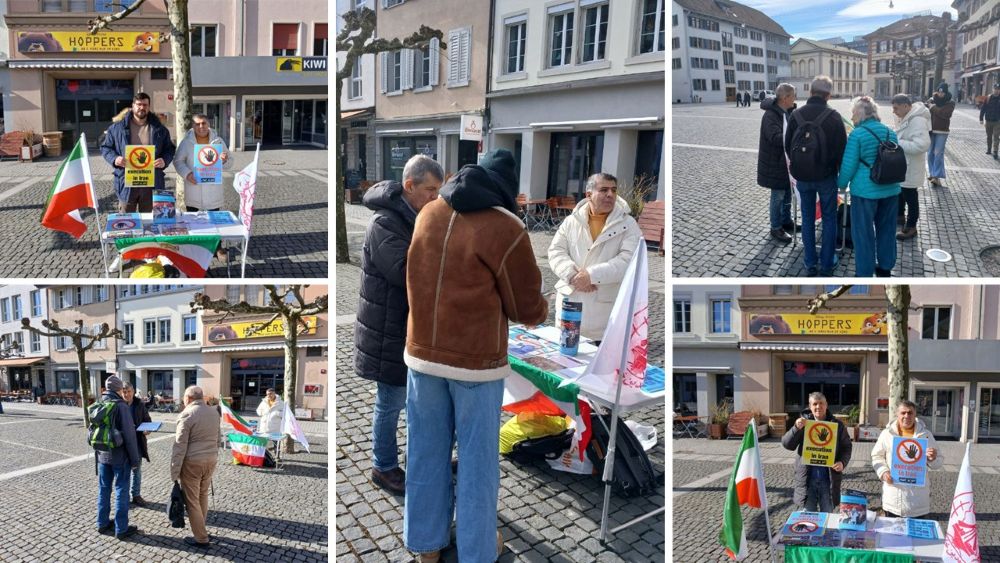Paris—June 30, 2024: Sunday, June 30, was the second day of the Free Iran 2024 Global Summit. World leaders, along with lawmakers and human rights activists from four continents, addressed the summit. This event strongly resonated with the historic ‘No’ voiced by the Iranian people, who boycotted the regime’s sham elections this week, echoing their call for freedom in Iran.
The international event broadcasted live to Iran, where thousands of PMOI-led Resistance Units and millions of Iranians, frustrated with the oppressive regime, watch as delegates from around the world express their solidarity and commitment to effective policy changes in their home countries.
With support from 137 world leaders and over 4,000 legislators who endorsed the Iranian people’s aspiration for regime change, this event signifies a renewed determination to end appeasement with Tehran and to recognize a democratic and free Iran.
#FreeIran2024 World Summit: Iranian Resistance's Blueprint for a Democratic Republic June 30, 2024 – 3 p.m. CEST https://t.co/RihLrCmKEQ
— Iran Freedom (@4FreedominIran) June 30, 2024
This page is updated with further developments of the summit.
Mrs. Maryam Rajavi, President-Elect of the National Council of Resistance of Iran (NCRI)
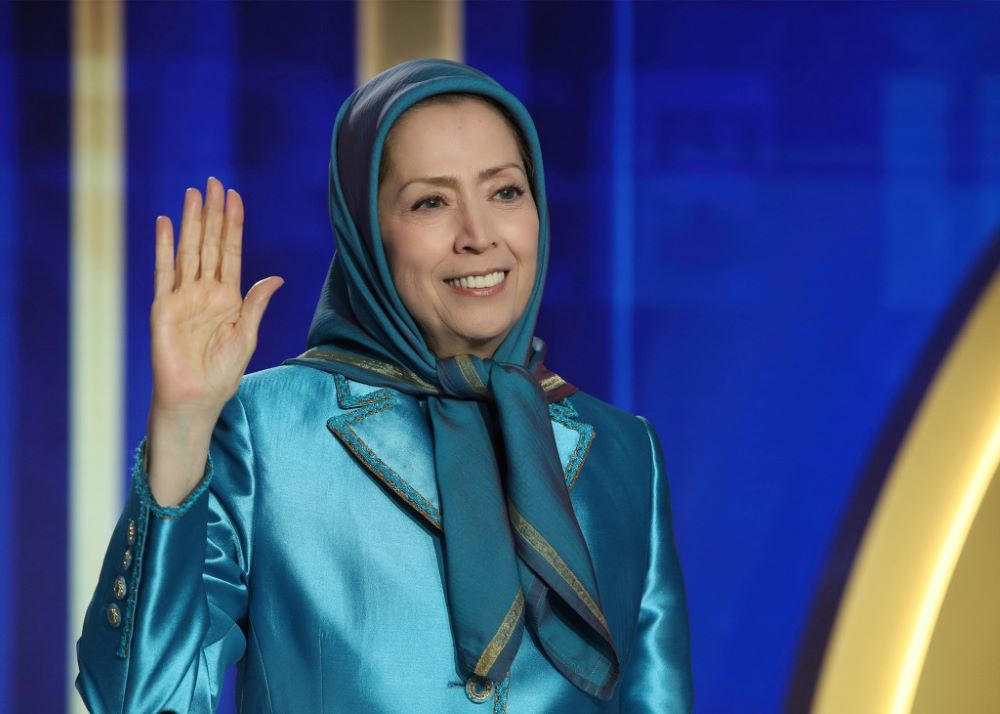
I warmly greet all of you on the second day of the Free Iran World Summit. This summit coincides with the significant triumph of the Iranian people and the Iranian Resistance, marked by the nationwide boycott of the sham elections of the religious dictatorship by 88 percent of eligible voters.
The boycott highlights the determination of the Iranian people and the Iranian Resistance to overthrow the clerical regime and liberate Iran.
The absence of mass participation, combined with election engineering failing to produce a clear result in the first round and necessitating a run-off, clearly indicates divisions, diversions, and schisms within the regime and its various factions. This situation proves the regime’s protective walls are full of cracks and holes.
The outcome of the second round is also neither vague nor complicated. Most people believe that Khamenei, through his well-known methods of election engineering—massive fraud and manipulations by the Interior Ministry under the guise of vote collection—will ensure the IRGC guard Saeed Jalili, who represented the regime during its nuclear negotiations and is also a member of the Supreme National Security Council, emerges from the ballot box.
However, there is little difference between Jalili and the other candidate, who has explicitly stated that his red line is deviating from Khamenei’s dictates and desires.
In response to the Iranian people’s uprising, which is progressing under all circumstances and is centered around an organized resistance moving toward significant political and social change, Khamenei employs both repression and warfare to protect his decaying regime. Simultaneously, he seeks support and protection through a policy of appeasement.
When we speak of appeasement, we are reminded of Europe’s historical policy with Nazi Germany. Although the current state and characteristics of the religious fascism ruling Iran greatly differ from the World War II era in Europe, the catastrophic nature of appeasement remains unchanged. It paves the way for the dark forces of history, representing a dagger to the heart of freedom, peace, justice, resistance, and human rights.
Over the past year, we have seen Western governments continue to capitulate to the clerical regime’s policy of blackmail, while the latter claims victims daily through suppression, warmongering, and terrorism both within Iran and abroad.
The race to provide incentives to these butchers has been clearly observed in Sweden, Belgium, France, and the U.S., continuing to bolster the clerics’ market for hostage-taking and human trafficking to an even greater extent. This endless business model, initiated during the eras of Khomeini and Khamenei, has persisted for 45 years. Regime theorists have conceptualized it as a new form of power that transcends economic, technical, and military capabilities. Western governments have become regular consumers of this new market, thus degraded to what Massoud Rajavi has termed a “hostage democracy.”
However, the perpetual hostages and ongoing victims are the Iranian people, human rights, and the angel of liberty.
This is where all principles are sacrificed to bolster a brutal dictatorship. They sell equipment and software to the oppressors of the Iranian people’s uprisings.
The clerics and their intelligence services have already penetrated some Western circles and parliaments. But what should be said about the hiring of lobbyists and regime supporters in some Western ministries?
Where and how are the regime’s military drones manufactured? Astonishingly, their engines are produced by Austrian and Canadian companies, and according to U.S. lawmakers, at least 75% of their components are sourced from U.S. markets, with no fewer than 10 British universities collaborating in the necessary research.
There was a time when they argued that concessions to the clerics were made to bolster the bogus moderates. Now, tell us, who is strengthened by freeing a bomb-wielding terrorist diplomat and a mass murderer from Gohardasht Prison?
Previously, you claimed to be reforming religious fascism. Now that you are engaging with missile-toting Revolutionary Guards, who exactly has reformed whom?
Over the last four decades, Western politicians have repeatedly granted concessions to the clerics, certainly securing specific commercial or diplomatic gains. However, when these decisions undergo the scrutiny of historical judgment, it becomes evident that this policy was founded on shortsightedness and transient interests, causing severe harm to the people of Iran, the Middle East, and global peace and security.
One might ask whether the history of this region was inevitably doomed to traverse through this bloody and fiery abyss. Was there truly no path towards freedom and peace for our people? Is there no remedy for the bloodshed and destruction wrought by religious tyranny?
Indeed, there is both a pathway and a solution.
The people of Iran have put forth an alternative and a solution: a vision of a free Iran, devoid of torture and executions, a democratic republic where religion is separate from state governance, where gender equality prevails, and where oppressed nationalities enjoy autonomy.
Full speech
Former Italian Prime Minister Matteo Renzi
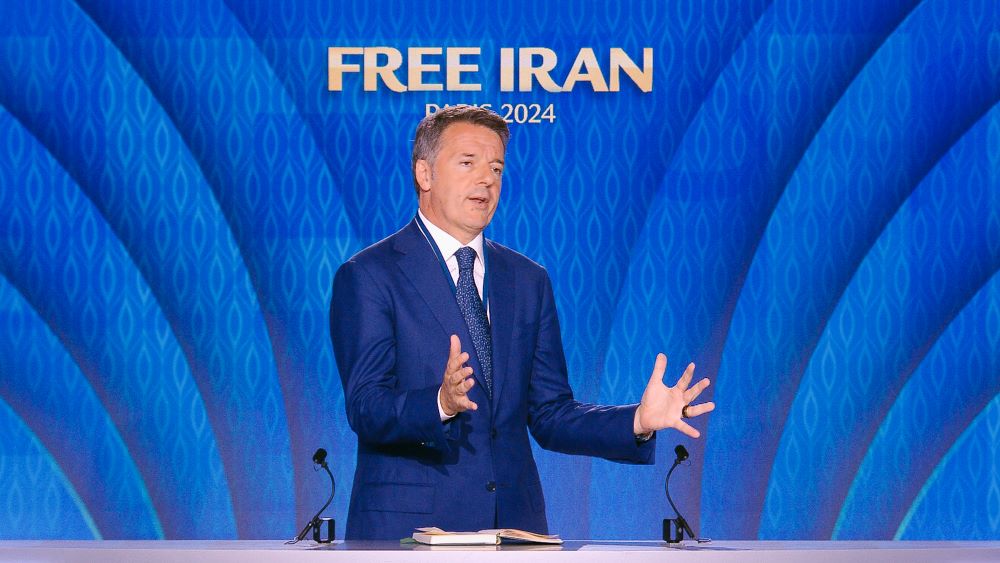
A lot has happened since our meeting last year. I am here to repeat that we believe it is possible for everyone to fight for a free Iran, as described in the Ten-Point Plan.
We believe a free Iran is a moral duty for three reasons. First, for the people of Iran. It is the only way to respect the great tradition of its people.
The second reason is that a free Iran is a moral duty for the Middle East because of what happened on October 7 and generally in the last 12 months.
The consequences of the regime do not stop at the border of Iran. They continue to spread in the Middle East and threaten the rest of the region’s people. The only way to create a new Middle East is to fight together for a free Iran.
The third and last reason is not only for the people of Iran and the Middle East but for the world. The world is in chaos. It is important to fight for democracy because democracy is at risk, including in places where it was born. If we are not able to explain the risks, we may lose an important opportunity for our future generations. We have different cultures but shared values, as stated in Madam Rajavi’s Ten-Point Plan.
Former Romanian Prime Minister Petre Roman
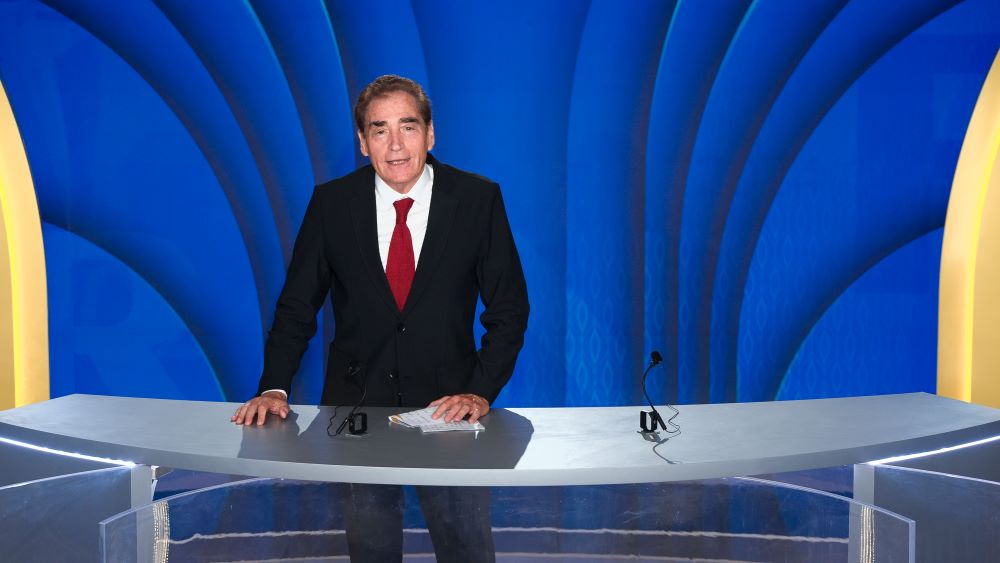
You are the heroes. You are those who are really building the future of Iran. I salute you from the bottom of my heart. When diplomacy is a mask devoid of moral values, then behind the mask is cowardice and vested interest. And the result is never good, neither for the people, nor for the countries. That’s the case right now in Iran.In November 1989, the Ceaușescu regime organized a Congress of the Communist Party to be reelected as the general secretary of the Communist Party, and all over the country, he ordered a lot of events to support his reelection. He was reelected but less than one month later, the revolution erupted with enormous force. In 24 hours, the regime collapsed and very soon after that, the dictator was executed.
The regime in Iran, those who are executing the orders of the regime, are, in fact, ruining the future of Iran. You, with your fight for freedom and for human rights, your sacrifices are, in fact, building a brighter future for Iran.
The problem of the regime in Iran is that they lack credibility. The whole machine, the propaganda machine they are using, cannot overcome this lack of credibility. This credibility is forever gone. A new credibility is coming from you, from the people of Iran. With this formidable perseverance and iron will of Madam President and with you, you will prevail. You will prevail for the good of the Iranian people and for the benefit of all mankind.
Former Prime Minister from Iceland Geir Haarde
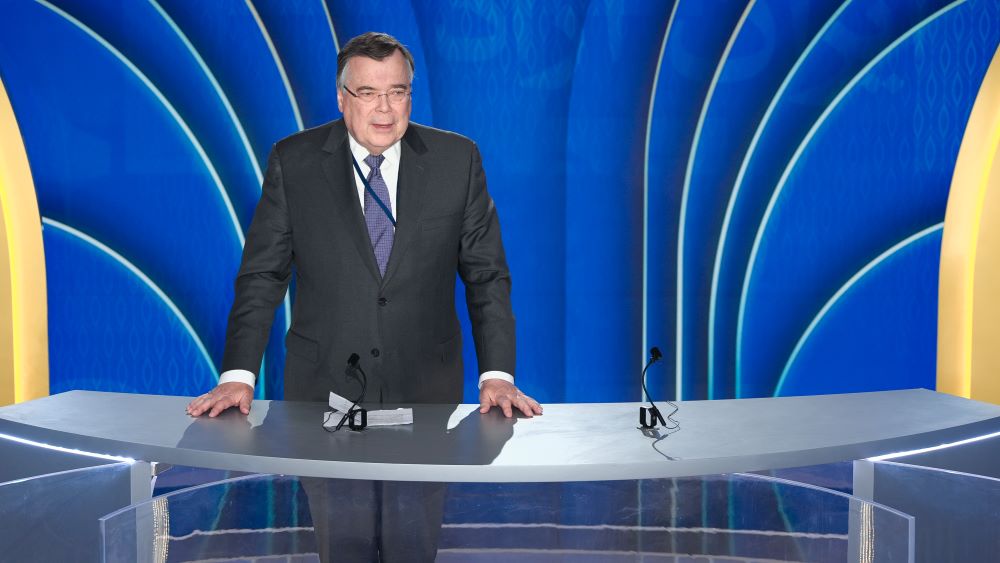
A few days ago, there was a so-called presidential election in Iran. But this is a tool for maintaining an illusion of democracy and ensuring the clerics maintain their authoritarian grip. The Guardian Council actually vets and picks candidates on criteria including unwavering loyalty to the regime. So how can you have a free and fair election on that basis?The March 2024 parliamentary elections saw a turnout of just 7%, while the rest of the population, 93%, boycotted the election, showing us all that they see through this sham. It was an act of coordinated civil disobedience, rejecting the regime’s legitimacy and demanding its overthrow.
Now, the struggle for freedom and democracy in Iran is a universal fight for human rights and dignity, for the protection of our own justice and democratic systems, and it’s time for the free world to support the legitimacy of the NCRI and its resistance units.
The opposition to the Iranian regime is legitimate. However, European and some American policymakers have failed to see this for the past 45 years.
Iran has suffered from this terrible regime that we all know systematically violates human rights with no room for democratic or fundamental freedoms.
Appeasement has not worked. Not in this case, not ever. I suggest that we all do whatever we can to support, and to get people in our home countries to support this movement.
Rosalia Arteaga, former President of Ecuador
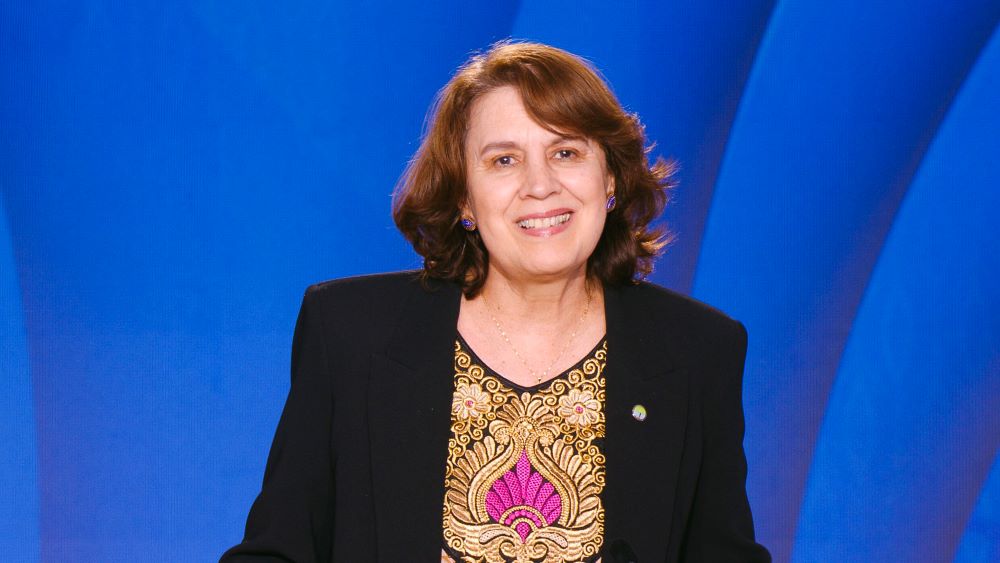
The 21st century has seen great advances in science, artificial intelligence, medical sciences, and communication. However, it is now presented with somber overtones in issues related to the coexistence between people and countries. There are painful confrontations, such as the one provoked by the invasion of Ukraine or the unfortunate events in the Israel-Palestine area, especially caused by the Hamas attack.Besides that, we see confrontations and tensions in the global world and within territories where it sometimes seems that gangs and mafias try to take over countries, as has happened on the American continent, in Haiti, and in the attacks and violence that we are suffering in several Latin American countries, including, unfortunately, my own country, Ecuador.
So we think that the 21st century is not as enlightened as it seemed. Regarding the situation of women, although we see progress in some places concerning female leadership with women governing countries, these are exceptional cases, and women still suffer situations of insecurity and inequality.
One of the countries where such a situation is so painful, suffering restrictions and persecutions of all kinds, is Iran. Iran is a country with a military culture that has given much to humanity and yet presently endures a regime that terrorizes women, limits them in terms of the most elementary rights, and takes their lives because they do not conform to the precepts—not of our religion but of what religious and political leaders who are misguided in their decisions and thoughts—want.
That is why we are here, women and men from different parts of the world, to show our solidarity with the struggle of women in Iran, with the Ten-Point Plan raised by the National Council of Resistance led by an extraordinary woman, Maryam Rajavi, who has demonstrated courage in this struggle day by day for the rights of women and the freedom of her country.
That is why women have to raise our voices, show our solidarity, and feel that what is happening in a distant part of the world, such as Iran, must receive our support and our desire for this struggle to bear fruit. This struggle is about tolerance, respect for others, respect for human rights, and respect for freedoms with an eagerness to move forward during this crisis.
So from this forum here in the city of Paris, we want to express again our disagreement with what is happening in Iran and our support for the struggle of brave women like Maryam Rajavi and a team of both women and men who are supporting their work both outside their country and at home.
Jorge Quiroga, former President of Bolivia
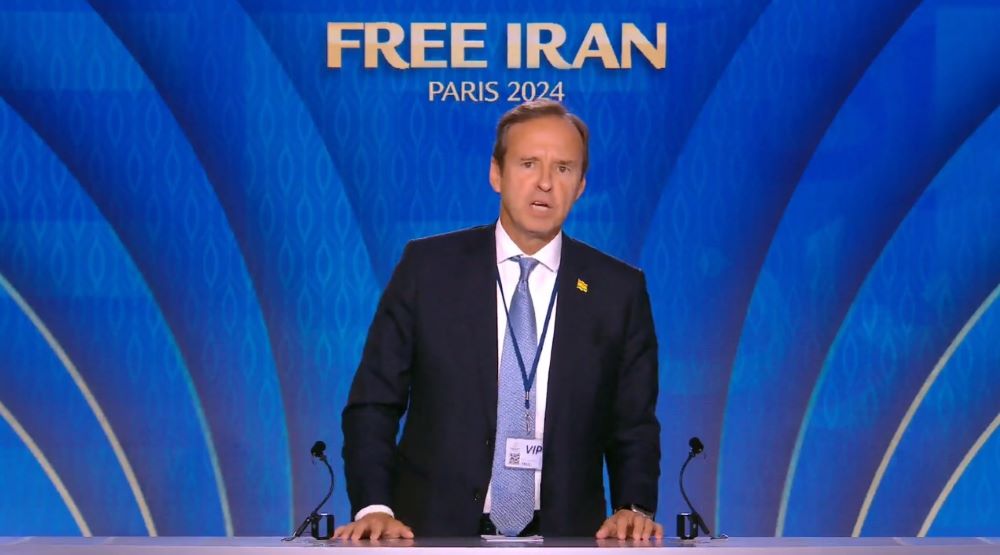
They are for tyranny. We are for liberty. They are for autocracy. We are for democracy. They are for one man, ruling forever. It’s always a man, never a woman. We are for the rule of law with alternation in power. They are for oppression and muzzling the free press. We are for freedom, including that of the press. They are very good at managing, articulating, and leveraging amiable appeasers in the Western world.
We want committed, consistent partners, like many of the ones you’ve invited here, to always be on the side of freedom and liberty for Iran, for Venezuela, and for every country in the world.
I like octopus and salad. I do not like tyrannical octopuses with tentacles that strangle democracy. They are global octopuses whose tentacles reach, interweave, and interact with each other. They coordinate, they help each other, and we very seldom help each other in the struggle for freedom against these octopuses that we have to fight against.
I’ve seen it in my country. Thirty years ago, on July 18, 1994, the biggest terrorist attack took place in South America: AMIA, Buenos Aires, Argentina. Eighty-four dead, including six Bolivians. Who was the mastermind? Vahidi. Where is he from? Iran. The minister. He paraded around my country in 2011 and nothing happened to him while he was there. He came to Venezuela, Cuba, and Nicaragua last year, Raisi.
So the issue that I want to focus on in July, drawing the world’s attention—despite the many other things happening—is Iran and Venezuela. Two countries that used to be oil powers now mired in high inflation, massive corruption, economies that have been destroyed, and criminal conglomerates that create political prisoners, murder people, exile people, and carry out extraterritorial assassination attempts, like they tried with Vidal Quadras in Spain. We have seen hostages being swapped for criminals, as you have in Iran.
It pains me, Madame Rajavi, when I hear the word “election” used, no matter how you qualify it—sham, fraudulent election. No, no, that is a charade and a masquerade. It does not deserve the word. The words “theocracy” and “election” do not go together. The press always likes to find out who’s the bad guy, who’s the good guy, who’s the conservative, who’s the reformist. Finding a reformist approved by the theocracy in Iran is like finding a Catholic nun in a drug cartel in Latin America.
Jaume Bartumeu Cassany, Prime Minister of Andorra (2009-2011)
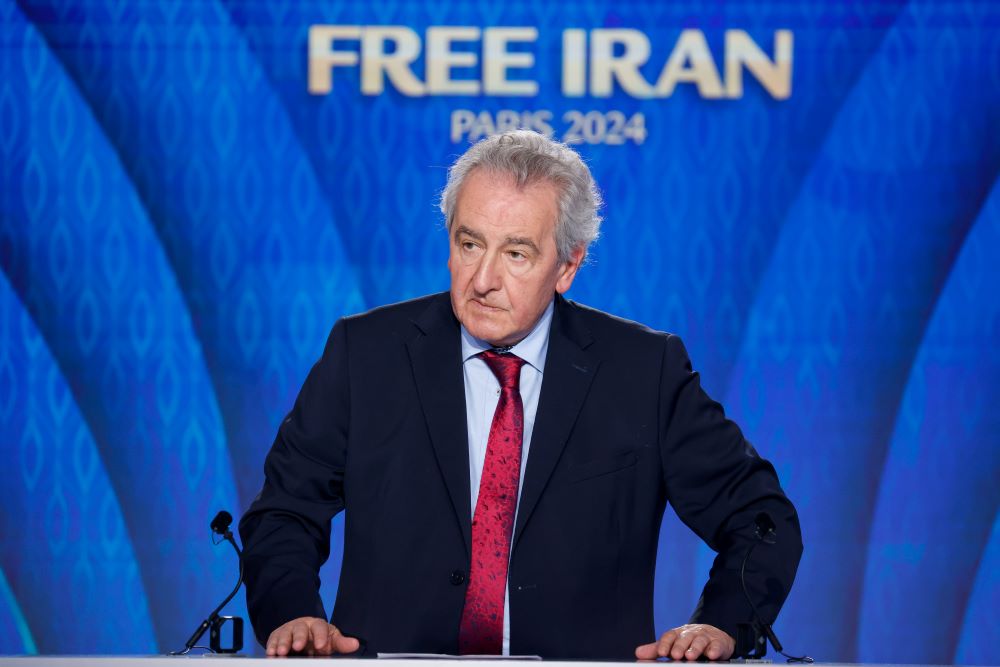
Maryam Rajavi’s plan for the future of Iran explains, and rightly so, that religion and state must be separated. Women in Iran are highly educated but are suppressed by the religious police. They don’t share the obscurantism of their leaders.More than ever, Iran needs a viable alternative for the economy to flourish and the youth to blossom and become part of the international community. The current regime does not seem willing to give women the freedom they deserve.
We must support the establishment of a legal system that respects the presumption of innocence, the independence of judges, and the abolition of the death penalty. These are crucial points that Mrs. Rajavi has presented in her Ten-Point Plan.
In September, *Le Monde* published four clandestine texts by women incarcerated in Iran. They tell us that the oppressive regime knows that democracy will eventually win. They show that a path to a democratic Iran will come not only from the outside world but also from inside the country.
I hope your struggle will soon lead to the end of suffering in your country. We will continue to support your resistance for freedom.
German State Parliament Representative (Lower Saxony) Christian Calderone
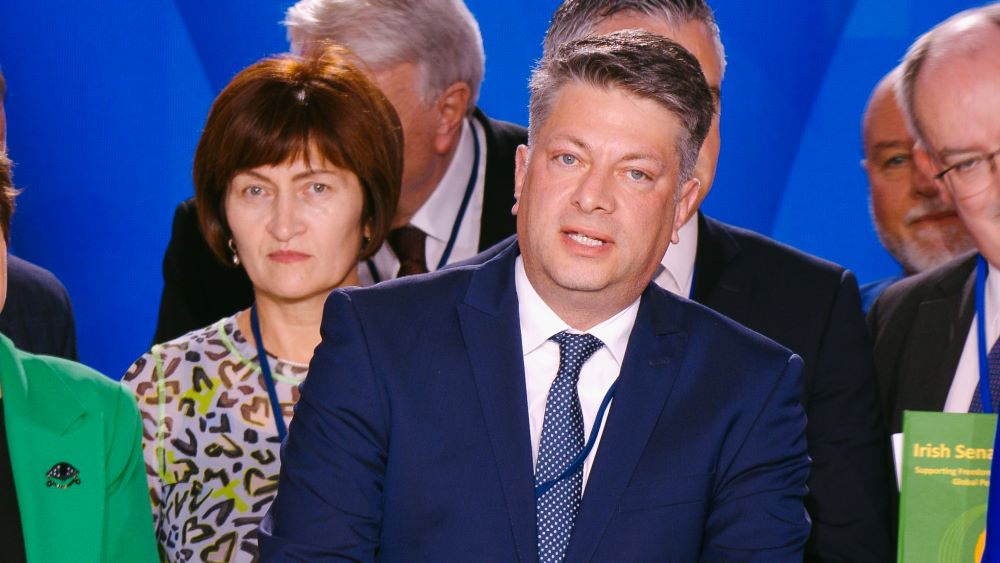
We have shown our support for your alternative, which will give the Iranian people a direction toward freedom and a bright future. MPs have signed a declaration in support of your movement. This is a step toward freedom in Iran.The regime has terrorized the people for decades and suffocated their demands for freedom. They have conducted terrorist attacks abroad. They have attacked our people.
Two days ago, we saw another sham election to legitimize the government in power. This regime will not be reformed. There is no such thing as a moderate faction. No election has meaning. The people have fought for decades for freedom, and they deserve a free and democratic republic where the people control their destiny and future.
We have declared our support for the Ten-Point Plan of Madam Rajavi. We would like the international community to recognize the struggle for a free and democratic republic.
German MEP Niels Geuking
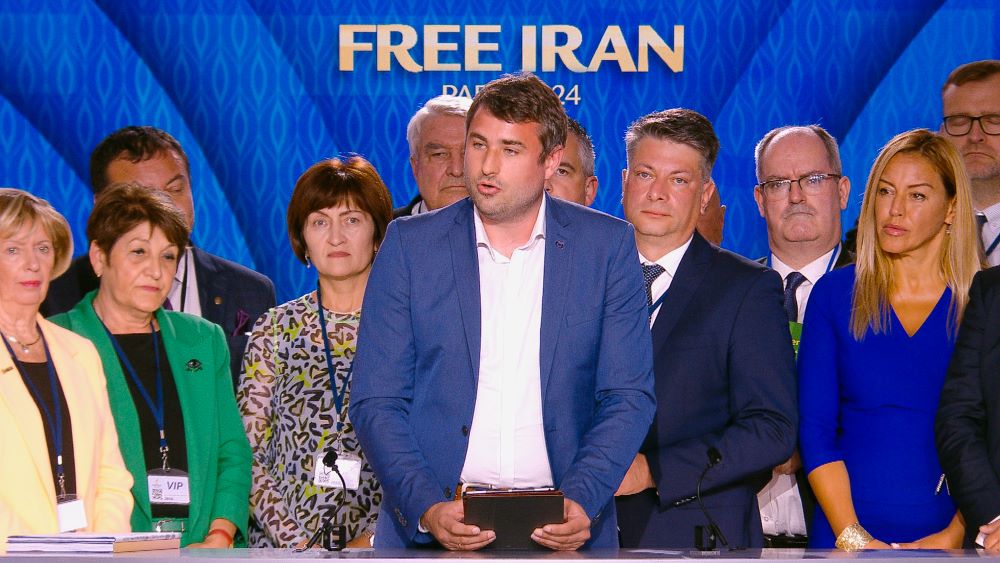
The people wish for nothing more than a free society and equality. By boycotting the sham election, the people cast a solid “no” to the regime. The people have been denied their rights by a regime that is based on deceit and egotism. Those who took part in yesterday’s rally are the true voice of the people of Iran.They say no to all forms of repression. The people of Iran want political change. We, democratic countries, must support them. We must end the trade with death. The EU must follow a stronger policy against the regime, recognize the right of the Iranian people to oppose the dictatorship, and recognize the NCRI as the opposition because the ten-point plan is a new basis for a democratic Iran. That is the Iran we all envision and would like to create together.
The road ahead is full of suffering. I’ve seen many people who were killed as they fought for democracy and for their families and children. Let’s commemorate and salute them. Every people who had the courage to take on what is necessary achieves what they are fighting for.
Lord Dholakia, Co-Deputy Leader of the Liberal Democrats in the House of Lords
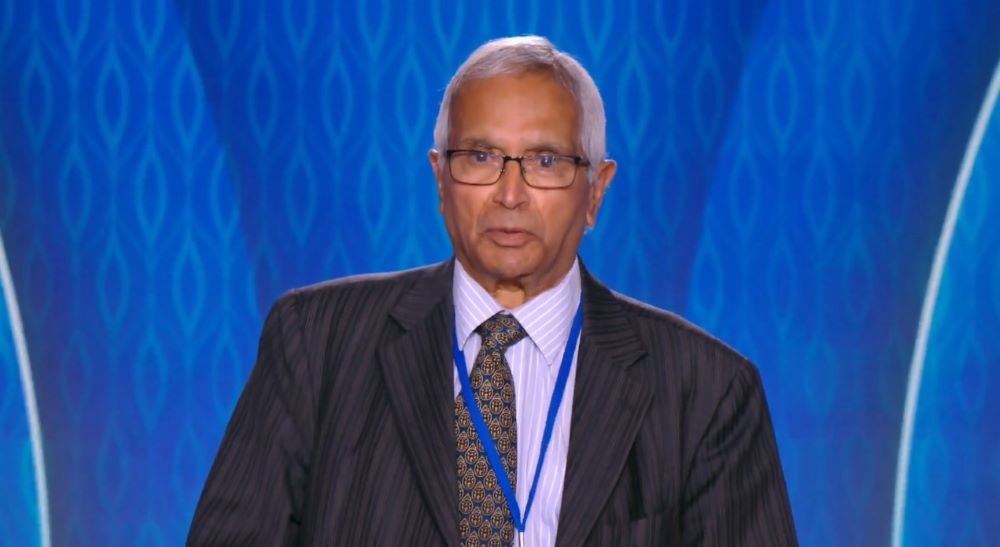
Two days ago, the regime in Iran held another so-called presidential election to find a successor to Ebrahim Raisi, who recently died in a helicopter crash. Elections in Iran are meaningless unless you are the Supreme Leader Khamenei. They are deceptions to legitimize an unpopular, faltering dictatorship.
Raisi’s only achievement for the regime was the 1988 massacre of 30,000 political prisoners, mostly PMOI members. This gruesome legacy was why the Supreme Leader handpicked him as president, and I’m not surprised by the inconclusive result of the presidential election. They’re going to have another presidential election next week, and we will soon find that we have nothing better than the Butcher of Tehran being elected as president of that country.
The candidates in yesterday’s fraudulent election included another key perpetrator of the 1988 massacre, signaling the regime’s unwavering commitment to its repressive cause.
One of the things that bothers me, being in the British Parliament and having been a member of the Iranian resistance movement for the last 30 years, is the extent of Western complacency toward Iran. The regime’s increasing repression and terrorism are partly due to the impunity it enjoys, resulting from the West’s soft-line approach. For instance, when a perpetrator of the 1988 massacre was sentenced to life imprisonment in Sweden, the Swedish government cowardly pardoned him in exchange for a Swedish citizen held hostage on false charges.
Western leaders and governments continue to fail the regime’s victims and the Iranian people by rewarding Iran’s hostage-taking diplomacy instead of ensuring accountability. The Iranian people have made it clear that they reject the absolute rule of the theocracy with their nationwide boycott of yesterday’s election. I also put forward a democratic roadmap in Madame Rajavi’s Ten-Point plan for the future of Iran. These are the characteristics of a true opposition and alternative to the Iranian regime: the NCRI, PMOI, and Madam Rajavi.
Steve McCabe, a former member of the British Parliament
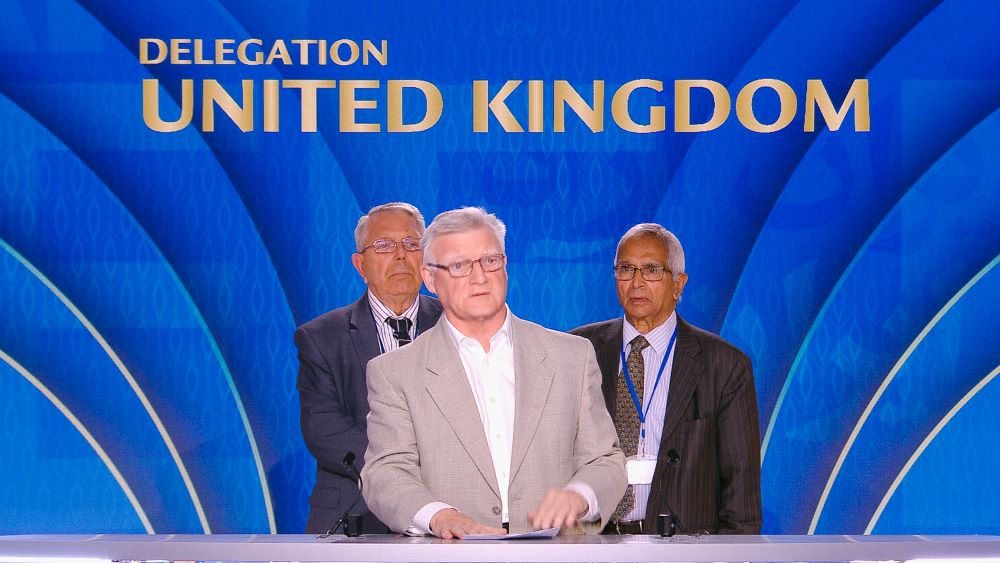
Colleagues in the British Committee for Iran Freedom and both houses of the UK Parliament have long argued for an Iran policy based on firmness and accountability. Some accused us of being pro-war and wanting to bomb Iran. That’s not true. It’s the same kind of lies Madam Rajavi and the NCRI have endured for decades.
Advocates of rapprochement and appeasement deliberately overlook the fact that a war is already being waged in Iran—waged by the regime against its own people, denying them their basic human rights and freedoms, and in many cases, the right to life through state murders and executions.
As we look at the situation today, we see the true face of this regime: its desire to support conflict and escalation in the region, killing and mayhem to eliminate democratic opposition, sham trials in absentia, and terrorist attacks abroad.
The sham elections designed to replace one mass murderer like Raisi with another tell us all we need to know about this regime. The Iranian people saw through it and rightly boycotted the farce, using the opportunity to spread the message: It’s time for revolution, not sham elections.
It’s time for the Iranian people to decide their country’s future. I am delighted to support and promote the ten-point democratic programme presented by Madam Rajavi, which begins with the absolute rejection of the Velayat-e Faghih and the affirmation of the people’s sovereignty and a republic founded on universal suffrage and pluralism.
What better way to allow the Iranian people to decide their country’s future than by ending the religious dictatorship and securing free and fair elections? I applaud Madam Rajavi and the NCRI, PMOI members in Ashraf 3, and all Iranians, including the brave resistance units inside Iran, for their efforts and sacrifices to help the Iranian people realize their democratic ambitions.
You are making democratic change possible. You deserve our support and assistance. I will stand with you until Iran is free.
Emanuelle Pozzolo, Member of the Chamber of Deputies of Italy
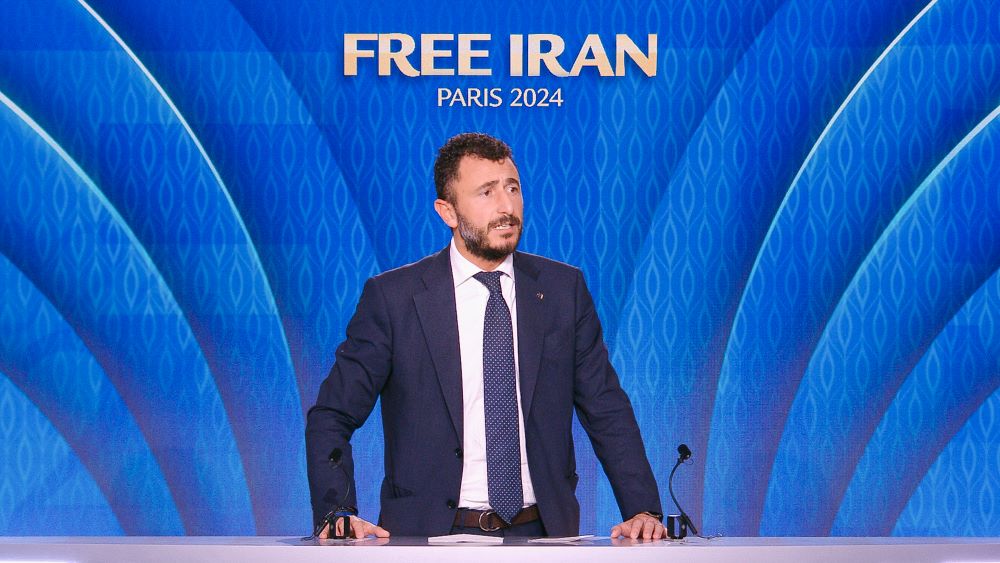
We share your ideas and values. There are some bullies who want to silence us. In some countries, they become the state. This is what happened in Iran. They are very dangerous because they use two main tools to remain in power.The first is terror. We have already talked about it. There are tens of thousands of women who are oppressed, killed, and whose lives are destroyed by the regime. The second tool is international terrorism. You all understand the regime’s terrorism.
We saw this on October 7 when the regime triggered the conflict to increase tension in the Middle East. Iran’s regime wants this tension. They need it. They are aware that they are losing power, and for this reason, they create war and chaos in the Middle East.
These are crucial moments. After October 7, everyone understood that the Iranian situation matters to the entire world. To use a soccer metaphor, there are two teams on the field: resignation and courage. I am cheering for courage. We are courage. The other team is weak. There is no doubt which team will win.
Western countries are freeing Iranian regime criminals, for what? We should not accept that. We want to be victorious. Western states sometimes make mistakes in their relationships with other countries. They must focus on one idea: we must respect the alternative, the real alternative, which is the ten-point plan of Maryam Rajavi. We will always stand with our Iranian friends.
Gerry Horkan, Member of the Seanad Eireann
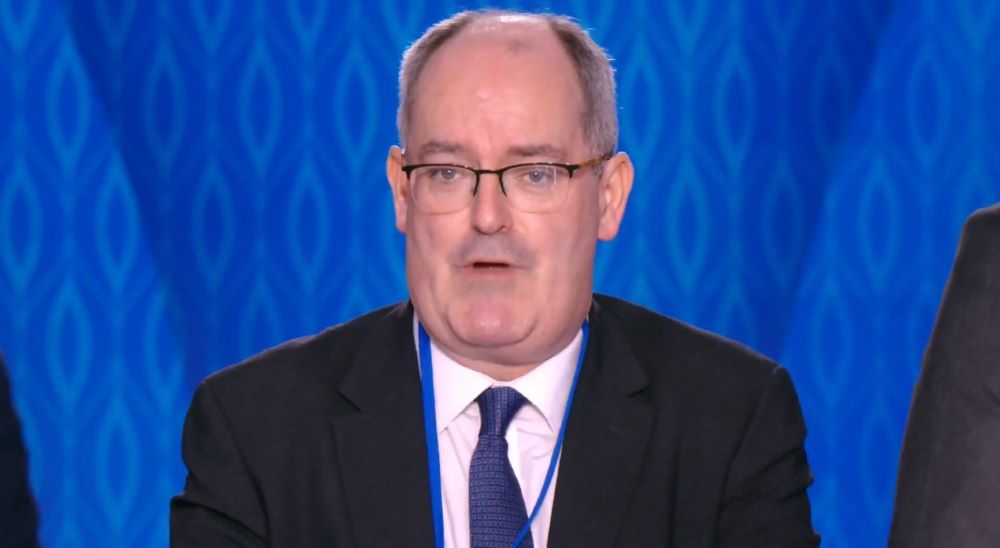
Last Friday, the people of Iran struck another blow against the regime by abstaining in huge numbers from the so-called election. They have declared no to the regime, no to dictatorship, yes to regime change, and yes to a democratic republic. A huge percentage of the electorate refused to participate in the sham election where all candidates were screened in advance by the regime. Indeed, many who did turn up spoiled their votes.
We know that everyone was screened in advance, and the West can no longer ignore this reality. We want to see Iran as a democratic country. We live in democracies, and we want to see the wonderful people of Iran being able to live in a democracy.
This nationwide boycott, organized by the resistance units of the NCRI, demonstrates that regime change must be central to the strategy against the current government in Iran. Critics argue against Western involvement in regime change, citing past failures in the Middle East.
However, they overlook two major facts. Firstly, it’s the Iranian regime itself that, through its destabilizing activities, made many of these Middle Eastern countries failed states. Secondly, the Iranian people, led by opposition leader Mrs. Maryam Rajavi, have repeatedly emphasized that overthrowing the regime and establishing a democratic republic is their responsibility. They are shouldering that responsibility.
What these critics seem to want is to continue the failed policy, as we’ve heard many times over the last week, of appeasement—showing the regime we do not seek its overthrow in hopes that Tehran will abandon its terrorism and human rights violations.
We know that bullies don’t react to appeasement. Bullies do not react in that way. They will keep attacking and keep attacking and keep attacking. History tells us that appeasing dictators never works. We must not forget that terrorism and repression are in the Iranian regime’s DNA.
The Iranian regime is promoting terrorism and conflict in Syria, Lebanon, Yemen, and of course its involvement in funding Hamas and the tragic conflict between Israel and Palestine. It reaches into Europe too, providing drones to Russia to aid them in their illegal, appalling invasion of Ukraine, and it has also caused the mass migration of millions fleeing countries it is involved with to Europe and elsewhere.
The West must stand with the Iranian people to effectively counter the threat that is the current regime. I am delighted to be joined by colleagues here and to announce that an overall majority of my colleagues in the Irish Senate, across all parties, are backing a statement on Iran that calls on the international community to support freedom and resistance in Iran for global peace and security.
The people of Iran deserve a fully democratic, secular system where they can choose who they want to lead them, elect them, and elect others to replace them when they don’t like where they’re at. Led by the NCRI and Mrs. Rajavi, they are showing great courage and resilience and are making great personal sacrifices to secure a free, democratic Iran.
John Paul Phelan, Irish Fine Gael TD
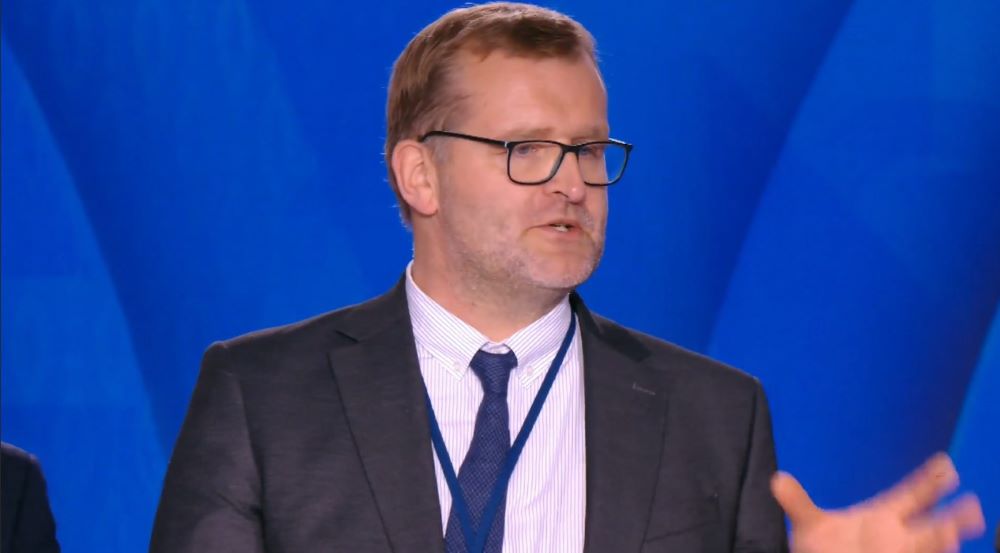
So many Iranian people that I know, who live in my own constituency in exile, often with their children, have never been able to travel home to their own homeland because their parents were involved in the NCRI and other opposition organizations. I cannot imagine what it must be like not to be able to do that.
I also want to, in a very particular way, criticize European governments and politicians from all over the world, including those from Ireland, who have, over the last number of years, tried to deal with the tyrannical regime in Iran. The only way to deal with the regime in Iran is with strength and outright opposition to their murderous and barbaric coercion of their own people.
I also want to pay tribute to those who spoke from Iran yesterday, disguised, their faces covered, to give their messages to this conference. I want them to know that they are not alone, that we here are listening to them. And not only listening, but we fully support their objectives for a free Iran.
Mitchell Reiss, US Special Envoy for Northern Ireland
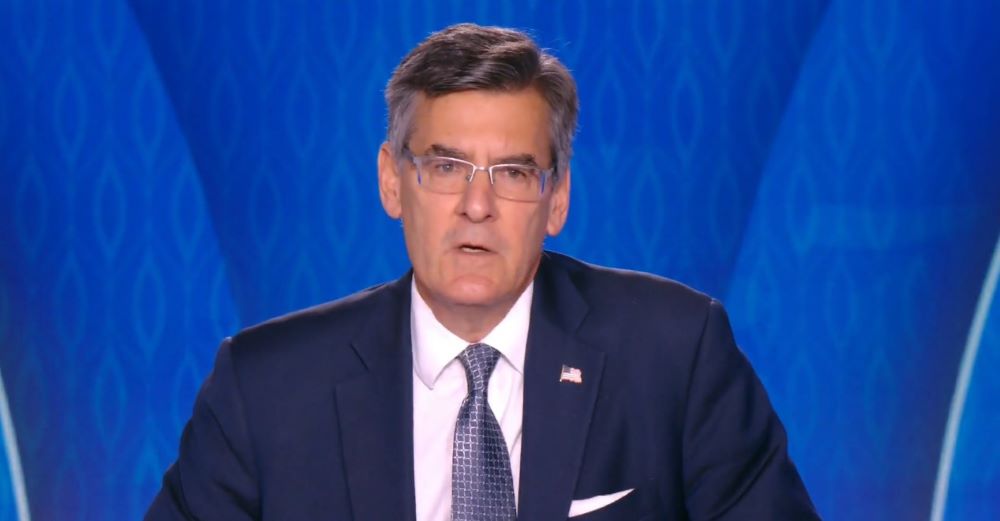
I want to briefly examine the MEK and NCRI efforts against the regime in Tehran across three different domains. Firstly, let’s consider the situation inside Iran. We observe a regime that is brittle and insecure. For instance, the morality police now wear bulletproof vests on the streets of Iran. This illustrates a regime that fears its own people, suppresses free speech, and denies fair and open elections, lacking all legitimacy.
Concurrently, we witness a strong and growing democratic resistance movement within Iran. Their personal courage is inspiring, and the trends are positive, moving in the right direction.
Secondly, examining the battle outside Iran, the regime, its allies, and proxies continue to spread misinformation and disinformation about Madam Rajavi and the MEK. Lazy and ignorant journalists and academics often repeat and amplify these falsehoods. While progress has been made in countering these perceptions, more needs to be done. It is crucial to portray Madam Rajavi as she truly is: an inspiring, committed, passionate, and democratic leader.
Turning to the third battlefield, the battle of ideas, what do the mullahs in Tehran offer? They are intellectually bankrupt. They cannot fulfill the basic functions of governance, such as delivering prosperity, managing inflation, and addressing high unemployment, especially among the youth.
Moreover, they fail to provide justice, as the justice system is arbitrary and corrupt. Iran today is a country where democrats and human rights advocates languish in jails while criminals hold positions in the police force and government. The regime sustains itself by repressing the people, controlling their freedoms of speech, expression, and even attire. The regime’s only exports to the world are violence and terror.
In contrast, consider the vision articulated by Madam Rajavi. The battle of ideas centers around their Ten-Point Plan for a free and democratic Iran, a governance model that respects individual rights and human dignity. On this battlefield of ideas, you are not merely winning; you have already won.
The mullahs in Tehran are completely unarmed in this battle. They cannot compete because they lack substantive ideas or values. Your ideals, on the other hand, resonate worldwide. They are enshrined in the US Constitution and the Universal Declaration of Human Rights, appealing to people everywhere who cherish freedom and democracy. These ideas and values are your greatest sources of strength. They are why we stand with you, why we support you, and they are why you will ultimately prevail.
Robert Joseph, former US Under Secretary, Arms Control and International Security
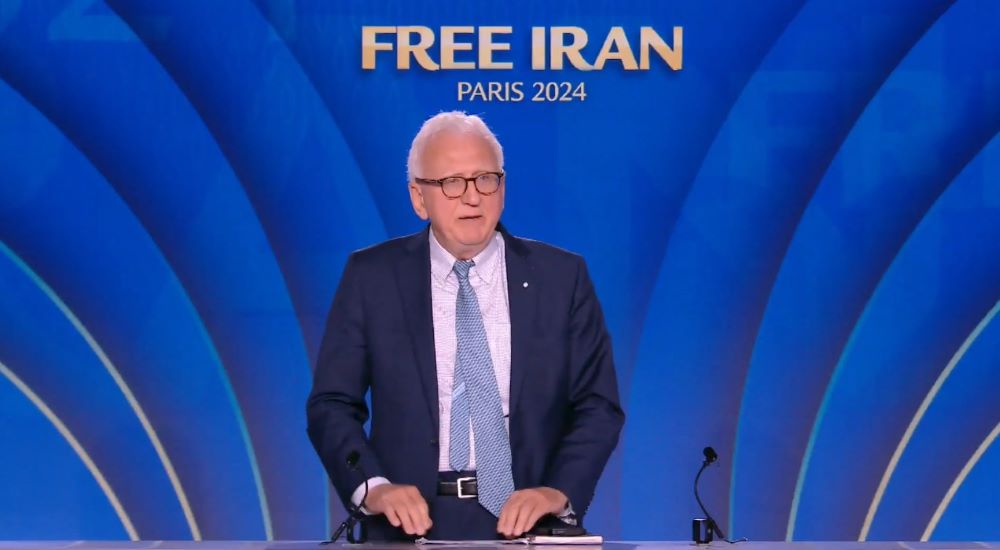
Madam Rajavi, you are a remarkable woman and today you are making history. Your inspirational leadership, vision, and personal courage serve as a beacon to various audiences: to those in the resistance units on the front lines risking their lives across Iranian cities, to the residents of Ashraf 3 tirelessly working day and night for a democratic Iran, to the entire Iranian populace yearning for freedom, and to the international community supporting your historic struggle.
For 45 years, the Iranian people have endured unspeakable brutality and been denied fundamental human rights—rights that were enshrined in the Declaration of Independence of my own country 248 years ago this week. The pursuit of these unalienable rights to life, liberty, and the pursuit of happiness has inspired people worldwide to overthrow despots and dictatorships for over two centuries.
These same freedoms are what the people of Iran demand, and they will achieve them once they cast off the yoke of repression. The brave men and women of Iran will settle for nothing less, even if it means making the ultimate sacrifice. As one Iranian woman in the resistance units recently stated in an interview, the pressure in Iran has been building relentlessly.
The people have had enough, and now is the time for action. This young woman embodies the spirit of the entire Persian nation, risking her life to crush the head of the snake. She is turning to the viable and prepared alternative, the MEK, NCRI, and the visionary Ten-Point Plan of Madam Rajavi, and the Persian nation is following in her footsteps.
It is the duty of all civilized nations to support the Iranian people in their fight for freedom. They must reject the insidious disinformation spread by useful idiots within and outside of governments, often influenced and funded by the regime. Instead of treating the regime as what it truly is—the indisputable leader and sponsor of international terrorism and the mass murderer of its own citizens—Western nations, in particular, have pursued a policy I call the fallacy of appeasement, which must end.
The entire international community must stop being the lifeline that sustains the evil oppression of the Persian nation for far too long. Western nations should practice what they preach by acting in their national security interests, providing moral support to those inside and outside Iran striving to end the regime, and assisting in various ways to hasten its collapse.
This can be achieved by exposing its pervasive brutality and corruption, imposing effective sanctions, and exploiting internal contradictions, especially the rifts between the people and the ruling medieval elite.
All nations should demonstrate political support for the democratic opposition and advocate for a free, democratic, secular, and non-nuclear Iran, as outlined in the Ten-Point Plan.
Dr. Barkat Ojan, former Minister of Culture from Jordan
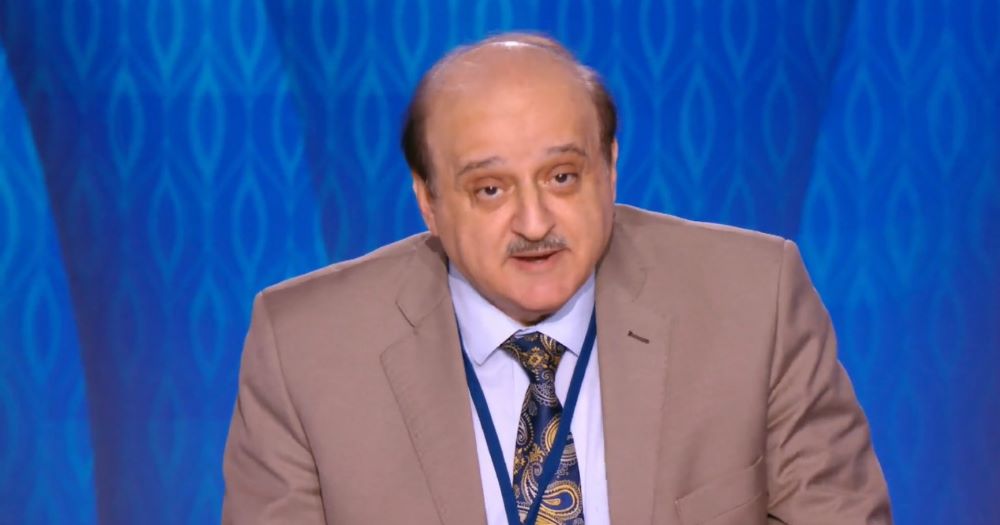
Dr. Barkat Ojan, former Minister of Culture from Jordan
As a Muslim and Arab Jordanian, I believe I understand the sentiments of educated people and politicians in my country very well. Nothing is more valued than honesty in our region. Our politicians and elite unequivocally condemn oppression worldwide.
Iran’s regime, under the control of the mullahs, has wreaked havoc across Iraq, Syria, Yemen, and now threatens similar actions in my own country. People throughout the region are fearful and upset due to the policies of major world powers.
Freedom must be the foundation. The Iranian people deserve much better, but this cannot be achieved under the current regime. There can be no peace while this regime continues to sow chaos and instability, waging wars through its proxies. It’s puzzling why the West continues to invest in this regime.
The NCRI stands as the sole entity that supports the Iranian people. Cooperation between the NCRI and neighboring countries promises to be very beneficial. The drug dealers, smugglers, and militias of the Iranian regime are present in Jordan and are part of organized crime groups, posing significant challenges.
Ad Melkert, Special Representative for the United Nations in Iraq
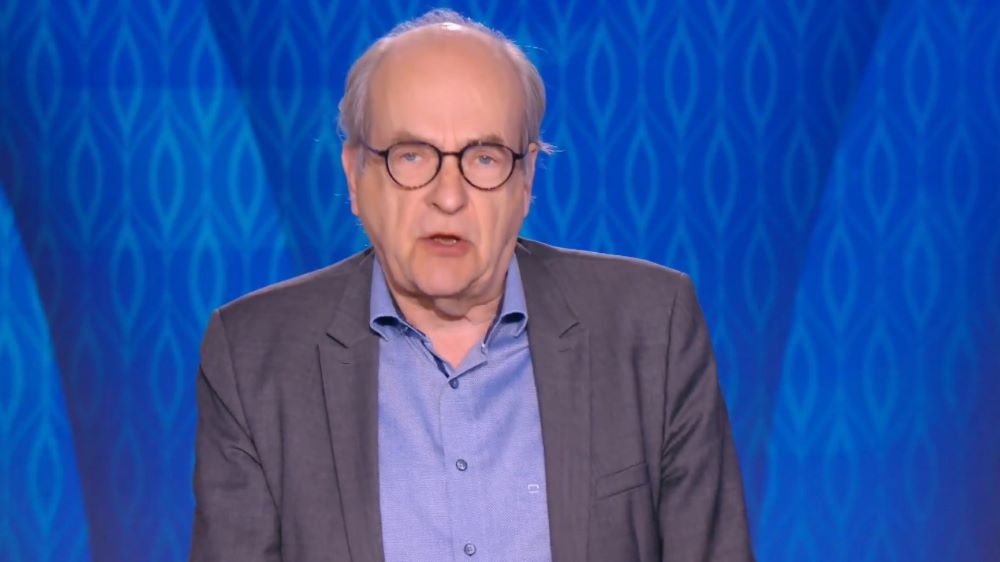
The recent Secretary-General’s report on the human rights situation in Iran, presented at the 56th session of the UN Human Rights Council, highlights profound concerns. It underscores severe restrictions imposed on human rights defenders, journalists, and artists, along with entrenched gender discrimination against women and girls. The report also brings attention to a distressing surge in executions, with 834 individuals executed in 2023 alone, marking a 43% increase from the previous year. The question that naturally arises is: when will this cycle of brutality cease?
United Nations Special Rapporteur on human rights in Iran, Javid Rehman, recently raised the troubling prospect of classifying the mass executions of political prisoners in the 1980s as genocide and crimes against humanity. This raises the urgent question: what more needs to be done to take decisive action?
There is deep concern over the international community’s response, as evidenced by recent actions such as the release of Hamid Noury by the Swedish government despite his life imprisonment sentence for his role in the 1988 mass executions, and the earlier release of Asadullah Assadi by the Belgian government. These decisions only embolden Iran’s regime in its hostage-taking tactics.
The brutal attack on Alejo Vidal Quadras, a former Member of the European Parliament and a staunch advocate for the Iranian people, serves as another stark reminder of the regime’s ruthless nature. Such acts cannot be tolerated by the international community.
Today, I stand in solidarity with all those who have endured and continue to suffer from the regime’s oppression and violence, which has shattered the hopes and futures of its own people over the past 45 years. However, this repression has not broken the resolve of the Iranian people, as evidenced by their resilience in places like Ashraf and Liberty, and their ongoing advocacy through initiatives like the Ten-Point Plan for change.
This gathering is crucial to reaffirm the imperative of supporting all those striving for a new Iran, especially the millions of young Iranians yearning to freely express themselves and achieve their aspirations in a democratic, internationally respected nation.
Moreover, this assembly underscores that the opposition both inside and outside Iran is prepared with viable alternatives to restore Iran as a credible partner in promoting peace and prosperity within the country and throughout the broader region.
I commend Madam Rajavi and all who continue to lead the charge for change in Iran. This change is not just overdue; it is within reach.
Marius Matijošaitis, Member of Parliament from Lithuania
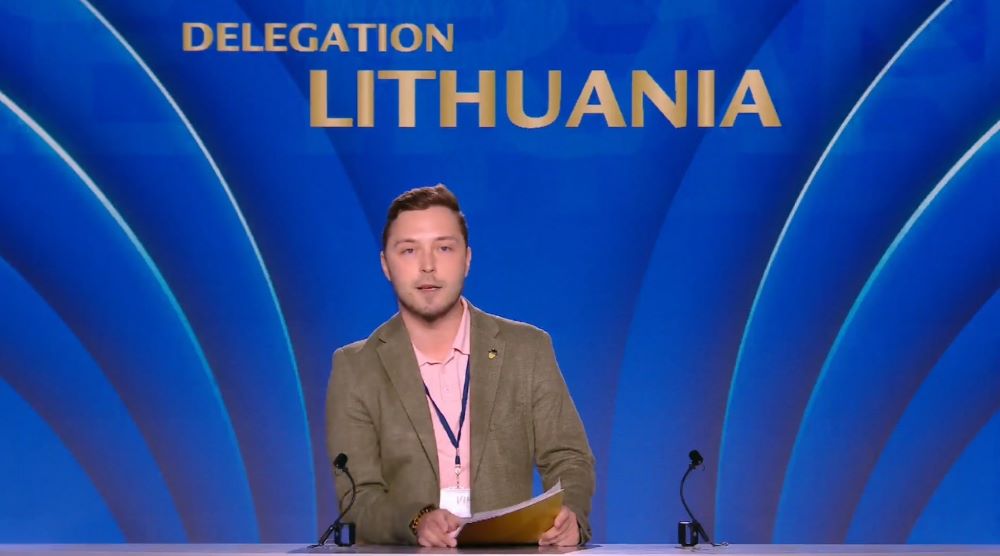
It’s heartening to hear about the significant support garnered for Maryam Rajavi’s 10-point plan, with 73 signatures from your Parliament. This demonstrates a unified stance in solidarity with the aspirations for a free and democratic Iran.
Reflecting on Lithuania’s own history of suffering under oppressive regimes, particularly during the decades of Russian imperial rule from 1940 to the 1990s, there is a deep empathy for those enduring similar struggles elsewhere, including in Iran today. The parallels drawn highlight the enduring fight against tyranny and the universal quest for freedom.
The analogy of confronting the devil in the actions of Iran’s regime prompts critical questions about how to address such malevolent forces: whether through direct confrontation, containment, legal accountability, or by rallying international solidarity against appeasement. These discussions and conferences are essential in fostering unity among democracies and standing firm against injustice.
Your commendation of the Resistance Units and organization for their organization, enthusiasm, and determination underscores the admiration and support for those on the frontlines of this struggle. Their efforts are pivotal in confronting and ultimately overcoming the challenges posed by oppressive regimes.
In essence, your message resonates with the call to collectively combat evil and uphold the values of democracy, justice, and human rights. It reflects a shared commitment to supporting those striving for a better future in Iran and beyond.
Izabela Konopacka, President of Fédération des Barreaux d’Europe (FBE)
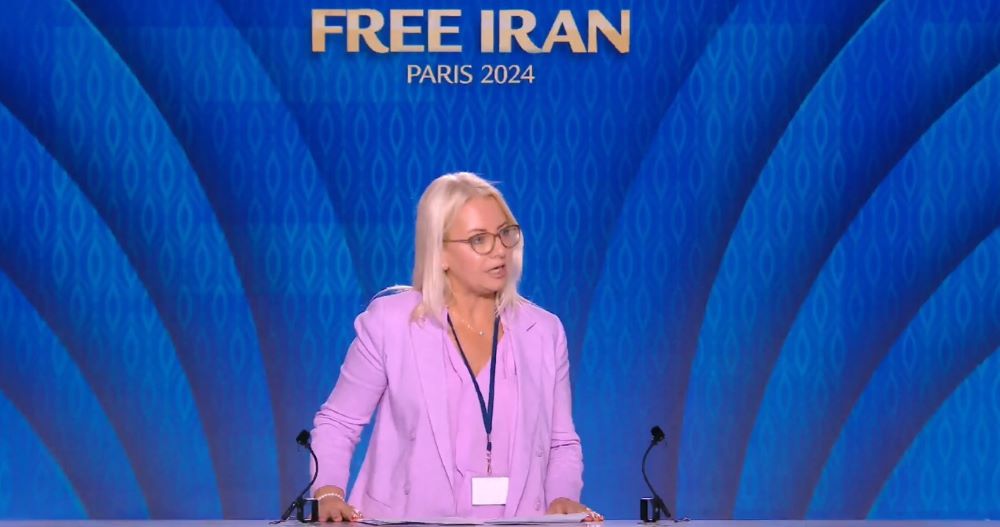
I believe that the Iranian people too will see their wall of oppression crumble soon. In my recent audience with Madam President, I was immediately struck by her dedication, courage, and intellect. Her leadership is truly remarkable. I was particularly impressed by the 10 Point Plan, which outlines a vision for a democratic Iran. The principles are fundamental to any democratic state and are the very values that we in the European Union often take for granted.
Today we find ourselves at a crucial moment in the struggle for justice and human rights. It is deeply troubling that despite clear evidence of severe human rights abuses, some governments choose to remain silent. Government politicians may hesitate to support the opposition to the regime, fearing the consequences of defying an oppressive regime. However, I want to assure you that lawyers committed to justice and the rule of law cannot and will not stay silent in the face of injustices committed by the Iranian regime.
The European bar stands united in condemning the Iranian authorities for conducting a sham trial against Iranian dissidents living abroad. This mockery of justice is not only an affront to the essence of justice itself but also a blatant attempt to stifle dissent and silence opposition through fear and intimidation.
On July 29, 2023, the Tehran Criminal Court publicly disclosed the names of 104 individuals associated with the People’s Mojahedin Organization of Iran. These individuals have lived outside Iran for over 30 years, many as refugees in Albania. The Iranian judiciary has a notorious history of executing tens of thousands of these individuals on unfounded charges, a grim practice that has persisted for more than four decades.
By fabricating charges and manipulating legal cases, the Iranian regime seeks to influence the decisions of European countries. Additionally, they are misusing Interpol by issuing arrest warrants, known as red notices, for these individuals.
Interpol must reject these red notices outright and publicly denounce the misuse of its mechanisms as an international police organization. As an international police organization, Interpol has a solemn duty to uphold justice and human rights. It must not become an instrument of political persecution. We call on Interpol to unequivocally state that it will not circulate any red notices issued by Iran against these dissidents.
The international community of lawyers must not ignore the Iranian regime’s blatant violations of human rights and its manipulative use of legal processes to further its political objectives.
With this spirit of unwavering hope and determination, as European lawyers, we express our solidarity with the oppressed people of Iran in their quest for freedom and justice. We believe that justice will prevail and, like the fall of communism in Poland, the tyranny of the Iranian regime will eventually come to an end.
Alexander Acosta, former US Secretary of Labor
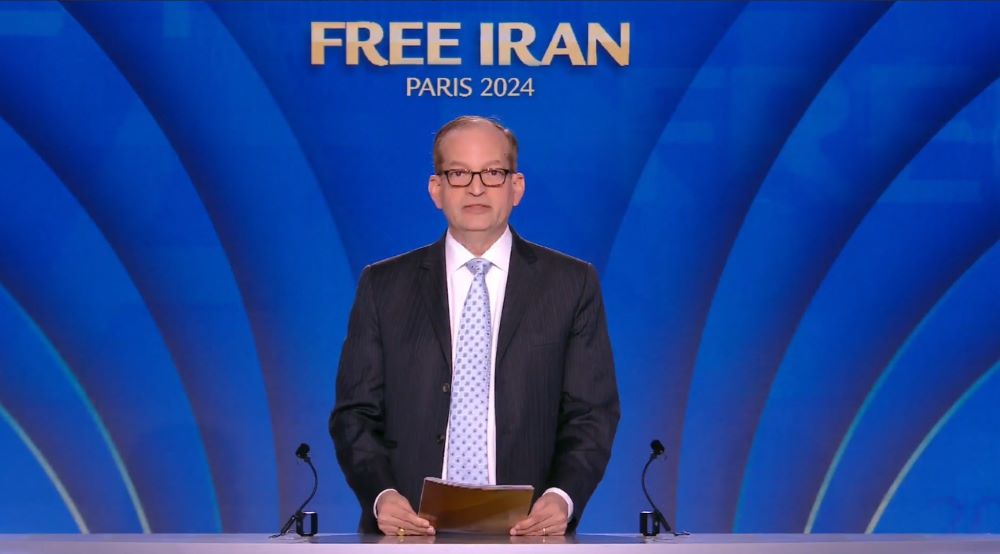
I would like to add three observations to the remarks made in yesterday’s conference. My first observation is directed at the youth and the younger generation. You are the future of a free Iran, and yesterday that was made so obvious by your demonstrations and by your speeches in Berlin. I don’t say this lightly.
I’m the son and grandson of Cuban refugees. My grandparents emigrated to America fleeing a murderous regime, a regime that imprisoned and killed its opposition. And they taught me the value and the cost of freedom, the love of democracy, and the importance of service and sacrifice.
Yesterday, I saw that exact same transgenerational dedication in the youth that was speaking and demonstrating in Berlin. The cause of freedom, the willingness to sacrifice, the pride of heritage—that has been passed down from father to son, mother to daughter, to their children, and their children’s children, was clearly showcased.
Alongside the speeches, we witnessed more than 20,000 acts of resistance, most from the younger generation. And we saw photos of young men and women fighting for freedom in 2022. You, the younger generation, honor and carry forward the sacrifices of your parents and grandparents, and it is because of you that Iran will be free.
I should add that for every act of murder and oppression like in 1988, more and more individuals and nations will stand for freedom. See, regimes believe that atrocities are a source of strength, but in truth, they reveal weakness. They reveal to children and children’s children why their parents and grandparents stood against that regime, and they motivate more and more young people to stand in opposition.
My second observation is this: I’ve heard the word “resistance” many times at this conference. NCRI and its members are certainly resolute and effective as a resistance, but I’d like to gently suggest that you’re so much more. You do more than oppose; you propose. And there’s a subtle but important difference between opposing and proposing an alternative. I suggest that this conference makes clear that you operate in many ways as a shadow government.
A resistance fights against something. A shadow government offers an alternative to something. You do more than fight against the regime. You’ve brought together at this conference nations from around the world, from nearly every continent. You showcased an organized, democratic, battle-tested shadow government that offers a sustained opposition and a platform—the 10-point plan based on freedom and dignity. You showcase what the leadership of a free Iran could be like.
My third observation is obvious but important, and it’s been talked about already, but I want to emphasize: Appeasement does not work. President Trump understood this. President Trump stood up and canceled the Iran nuclear deal, and in doing so, he deprived the regime of billions and billions of dollars that could have otherwise been used to spread terrorism and to support internal oppression.
President Trump designated the Revolutionary Guard as a terrorist organization. That had never been done against a government before. And those weren’t mere words or labels; in the United States, that designation had with it the highest level of sanctions across the board, not just for the regime, but for companies and individuals doing business with the regime. Those sanctions work.
The regime is weak. Change is imminent. These so-called elections make no difference. Simply put, the greatest testament to the lasting power of Mrs. Rajavi’s dream—your dream—are those youth in Berlin. The transgenerational effort that has been embraced across generations from father to son, mother to daughter, the commitment to a free Iran has persisted for decades. And in this room, the nations of the world should realize there is a battle-tested resistance that offers a lot more than mere opposition. Now is the time when the nations of the world have to stand and say, “We will not appease. We stand for a free Iran.”
Loretta Sanchez, Former member of the US House of Representative
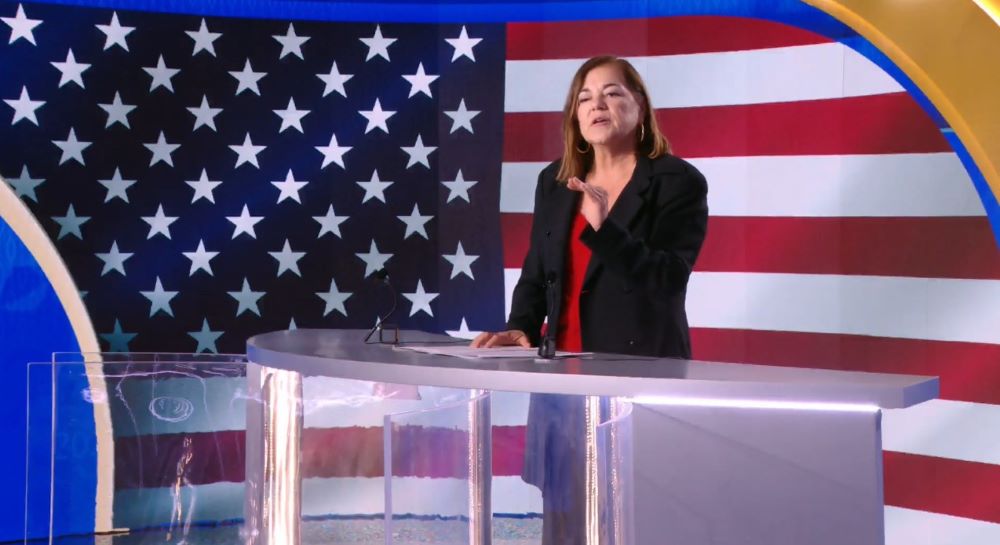
Armita Garavand is only one of many women killed in Iran every year for not wearing the hijab, for wanting to dance or listen to music, for speaking out about freedom, for wanting very basic human rights. Freedom. There is nothing more important than freedom.
At her burial, authorities assault mourners and put dozens of people in prison, including many human rights activists. Dozens of these women are still in prison. Freedom. There is nothing more important than freedom.
Journalists who want to report on what happened to Armita face reprisals for doing so. Her family is forced to publicly declare her death a crime and echo a false narrative, exonerating the government.
There is nothing more important than freedom. Freedom to wear your hair any way you want in public. Freedom to mourn your loved ones. Freedom to assemble and to protest against the wrongs of your government. Freedom to report the truth. Maryam Rajavi knows about standing up for human rights. She knows that it takes courage to fight for freedom.
Mrs. Rajavi’s Ten-Point Plan for a Democratic Republic in Iran would enshrine these very human rights for all and finally acknowledge that women in Iran matter.
Point 2 of your plan: Freedom of speech, freedom of political parties, freedom of assembly, freedom of the press, and freedom of the internet. Freedoms that we are fighting for and experiencing here today must be in Iran under your plan.
Your point no. 5, the one which I feel so deeply today: Complete gender equality in politics, socially, culturally, economically, and equal participation of women in political life. We need this in Iran. The abolition of any form of discrimination.
The right to choose one’s own clothing freely. The right to freely marry and divorce, and to obtain education and employment. So let’s do away with that dictatorship. Let’s do away with that theocratic regime. Let’s do away with the noose of oppression. Why? Because freedom is the most important thing, and all of us must fight for it, for the women in particular of Iran.
Juku-Kalle Raid, Member of the Riigikogu and former Estonian Minister
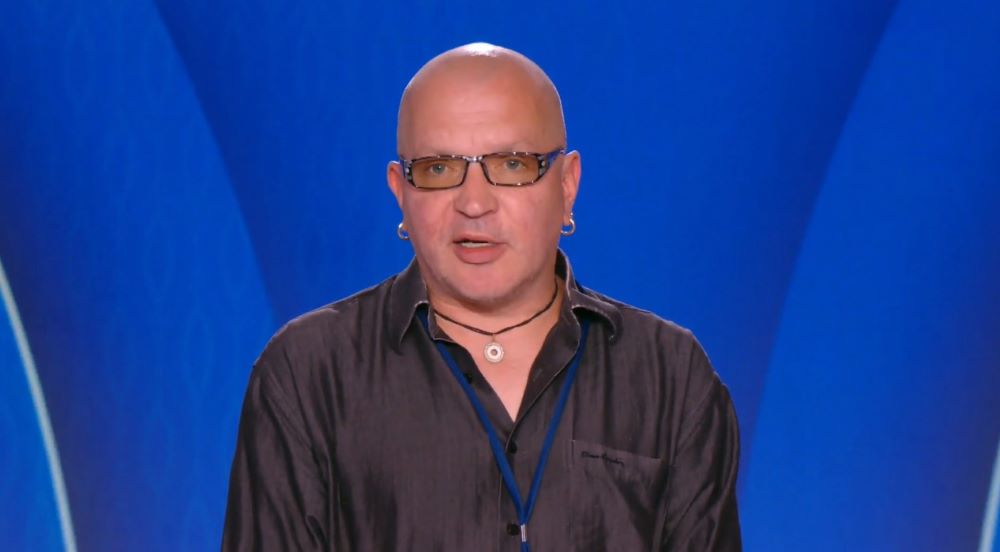
My first time was here about 11 or 12 years ago. No one understood the threat of Iran’s regime. The things I would change in the world. I’m very sad to be here. Because we are not holding that meeting in free Iran. In Free Tehran, where it should be like our joy gathering when we’re all happy.
This is how dictatorship works everywhere. If one of them wins and continues, we all are the losers. The tragedy of the free world is that our shoe lies deeply in the dictatorship because we negotiate, we step backwards. And every time we take a step backward, dictatorship takes two steps forward.
We will continue to support your fight and hope to one day see you in a free Iran.
Ana Helena Chacon Echeverria, Former Vice President of Costa Rica
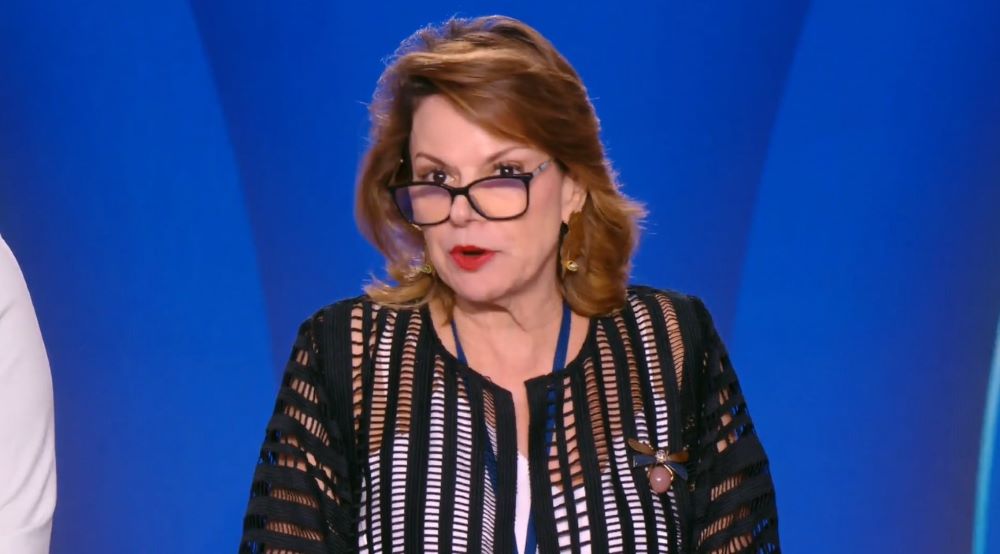
We are facing a significant and growing enemy: the rise of authoritarianism and nationalist politicians in governments. We cannot stand idly by in peaceful international solidarity against this grave threat of fascism, the normalization of racism, exclusionary discourse, and oppressive policies.
We need to unite with all people who are being oppressed, tortured, sexually violated, and held in inhuman prisons by authoritarian governments and their military forces. Together, we must fight for justice, peace, and the full respect of human rights for marginalized individuals.
It is imperative that we work together to dismantle oppressive systems that categorize people, reject diversity, and silence dissent. We must recognize that women in Iranian prisons share more similarities with all unfairly imprisoned individuals than they do with the regimes that imprison them.
Misogyny and religious fundamentalism are undermining societies worldwide, and Iran stands as a prime example of oppressive regimes.
The women of Iran should be our inspiration. They have courageously stood up and exposed the violence of their regime. This is why I strongly support Maryam Rajavi’s 10-point plan.
Monserrat Ruiz Guevarra, Deputy of the Legislative Assembly of Costa Rica
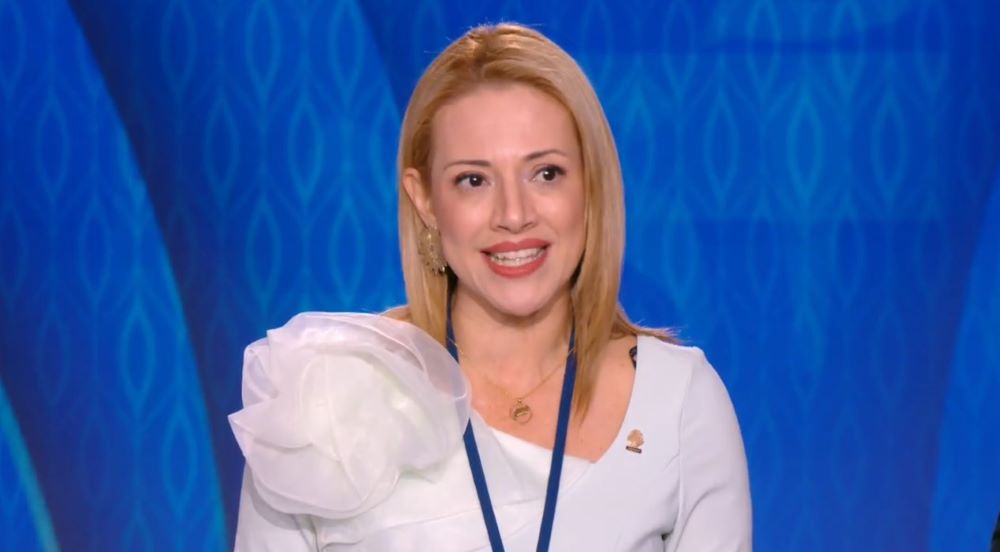
Thank you for inviting us here to stand on the right side of history. To everyone present, it is an honor to represent the many women and men united in the common cause of fighting for freedom in Iran.
In 2022, Time magazine declared Iranian women as heroes, setting an example for the entire world. As members of this parliament in Costa Rica, it is our duty to stand up, speak out, and defend all women who are abused and oppressed globally. Sadly, oppressors often hold positions of power.
Gender equality is synonymous with hope. Our resistance is a collective effort against misogyny. Women stand in solidarity for equity and fairness. No society can progress without women’s rights. In Iran, misogyny is pervasive. Women are victims of the regime, facing discrimination based on gender in laws, forced marriages, and the economic system. History illustrates that such regimes oppress women.
Maryam Rajavi’s courage exemplifies why the fight for freedom is crucial. Women’s rights are human rights. Today, the face of resistance wears a woman’s face.
Ken Blackwell, former US Ambassador to the UN
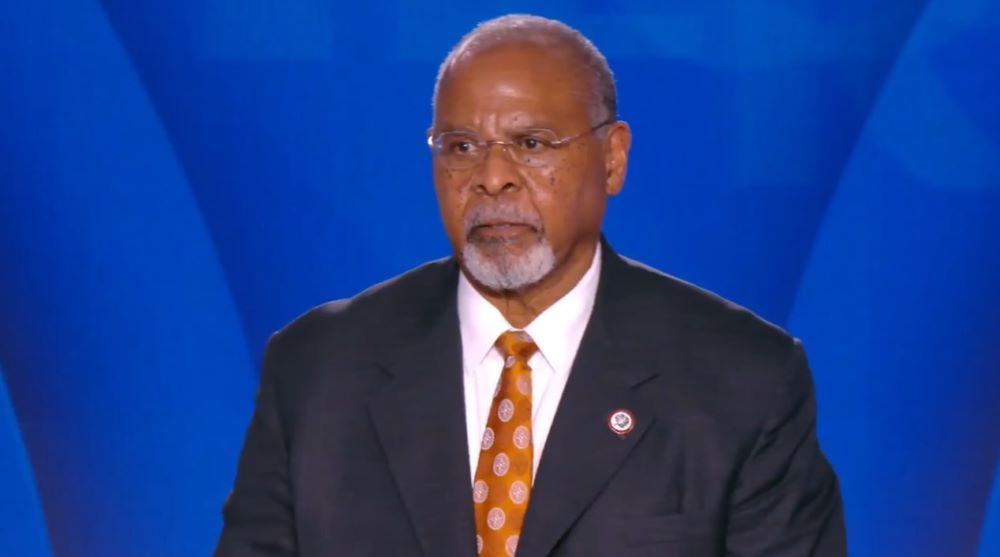
For over 50 years, I’ve dedicated myself to human rights, both domestically and globally. The tragedies I’ve witnessed at the hands of dictatorships, authoritarian governments, and theocracies are beyond most people’s imagination. I helped build the case against Milosevic in the former Yugoslavia and witnessed the brutality of apartheid in South Africa. This must stop.
What I want to say comes from my heart, especially to those individuals on the frontline of the fight for a free Iran. Ladies and gentlemen, freedom fighters all, there are many United Nations reports that will be forgotten if we give up. Some are sprinters who burn out quickly, but you, freedom fighters, are long-distance runners. You are on the frontline, and you will make a difference. Iran will be free.
Mass executions like those we witnessed in 1988, and holding members of the diaspora guilty in absentia are hallmarks of a brutal dictatorship. We look forward to a day when we come together and amplify each other’s efforts. It’s often said that those who do evil love darkness, but each of us possesses a light. We cannot hide that light under a bushel. We must use our individual and collective lights to pierce the darkness of our time.
History is not a snapshot; it is a process. Together, we will change the arc of history towards freedom and a free Iran. It has often been said that power concedes nothing without demand; it never has and it never will. Together, we will confront the oppressive power centers in Iran. We will indeed change the regime and the political landscape in Iran. Iranians will be free to continue creating and making a difference.
Ricardo de Piedade, Former Minister of Maritime Affairs of Portugal
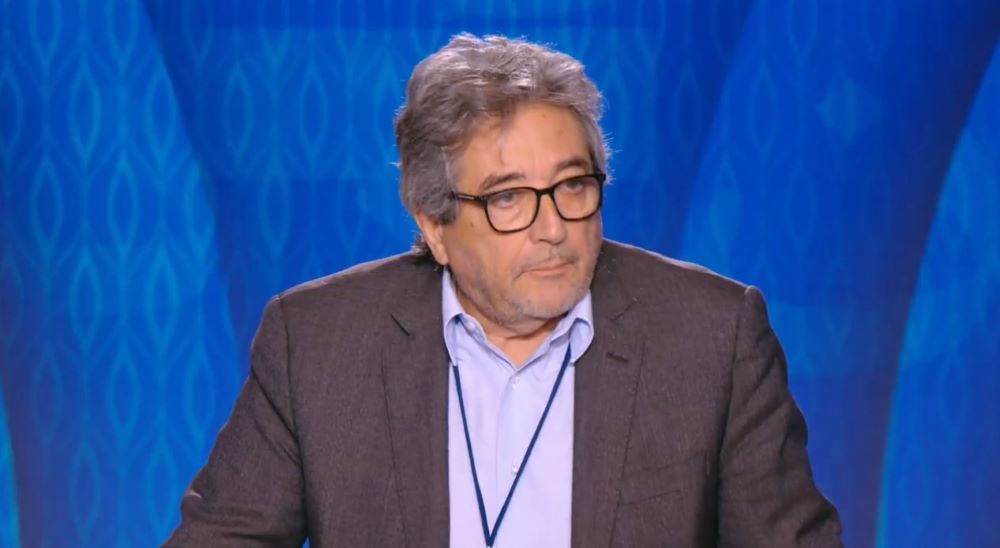
To all, including the international supporters of the regime, some of whom are ashamed accomplices, the Iranian regime maintains its power by perpetuating the illusion that no alternative exists.
This is primarily a narcissistic deception by the Mullahs, whose narrative is challenged by those represented here. The National Council of Resistance of Iran has actively opposed the regime for 43 years, offering a democratic and viable alternative.
Maryam Rajavi’s 10-point plan exemplifies strong leadership and commitment to democratic principles, providing a clear roadmap for a free and democratic Iran. This plan serves as a beacon of hope in the current situation.
I have always valued free thinking, free speech, a free press, freedom of religion, freedom of opinion, and the freedom to choose one’s attire. These fundamental freedoms, cherished in academic institutions, are suppressed in Iran under the current regime.
Under the Mullahs’ regime, there is unacceptable segregation against women. Women in academia in Iran face specific safety, mobility challenges, and threats.
Maryam Rajavi’s 10-point plan explicitly promotes full gender equality across political, social, cultural, academic, and economic domains.
The NCRI is at the forefront of resistance against the regime, risking much in their fight. Mrs. Rajavi is dedicated to democratic values, offering a legitimate alternative to the current regime.
Newt Gingrich, Former Speaker of the US House of Representatives
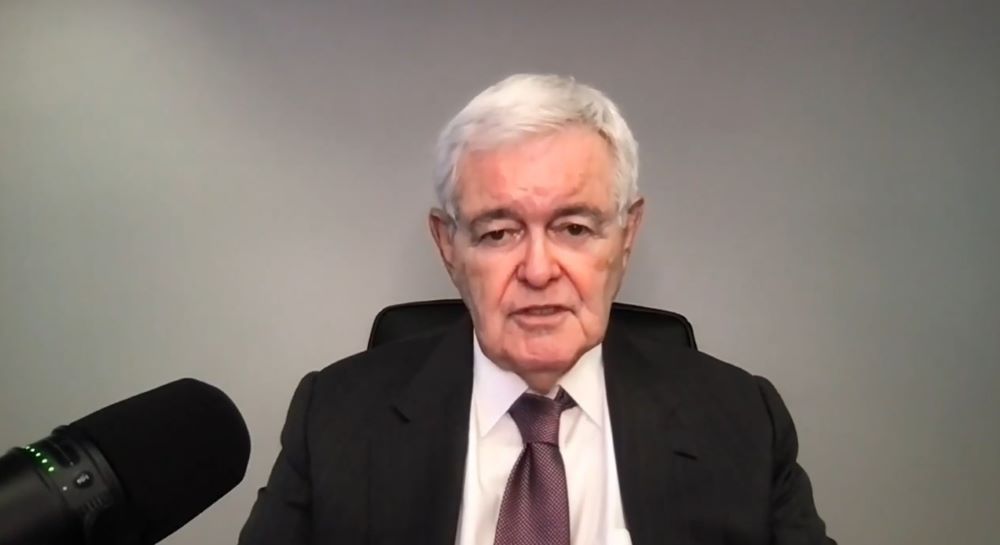
We’re at a genuine crossroads, that much is clear. The theocratic dictatorship is under increasing pressure. In the last election, only 7% of the people in Tehran turned out to vote. When 93% of potential voters indicate that nothing happening matters to them or that they lack the ability to effect change, it signifies a high level of isolation.
As the dictatorship has aged, it has become more focused on repression. Instead of improving the quality of life for Iranians, it has diverted resources to supporting terrorism across the Middle East and pursuing a nuclear program. This poses a real threat not only to the world but also to Iran itself, potentially leading to preemptive actions that would be horrifying.
The current dictatorship is increasingly isolated, evident in the heightened repression, the deaths of young people, and the large number of political prisoners.
Upon President Raisi’s death, some rushed to offer sympathies. Let’s be honest: he rose as a torturer, willing to kill, maim, and mutilate. He was a lethal figure who helped the regime survive through violence and repression.
We are at a pivotal moment. More and more people in the United States are beginning to understand this opportunity. Those who were once confused or thought appeasement was possible are slowly realizing that this dictatorship cannot be reformed—it must be replaced. At its core, the regime thrives on repression and hostility toward the world.
When the leaders of the current dictatorship chant “death to Israel” and “death to America,” they mean it. Khamenei himself stated on national television that “death to America” is not just a slogan but a policy.
As the regime’s ties to terrorism become clearer and its nature as an undemocratic regime reinforced, the potential for a significant shift in American policy grows. Personally, I believe that after the next election, you will see a much tougher approach aimed at isolating the regime, imposing crippling sanctions, and weakening it to empower the people of Iran to create their own future.
It’s crucial to remember that we have no conflict with the people of Iran. It is an honor for me to engage with you, to share these thoughts, and to convey the concern shared by many friends who understand the situation. Do not despair. Recognize that while the journey is arduous and the challenges immense, freedom will prevail, and dictatorship will falter. The opportunity for individuals to pursue their faith, worship freely, and live decent lives will come to pass. Each of you involved represents the commitment that will make this future possible.
Portuguese MEP Francisco Guerreiro
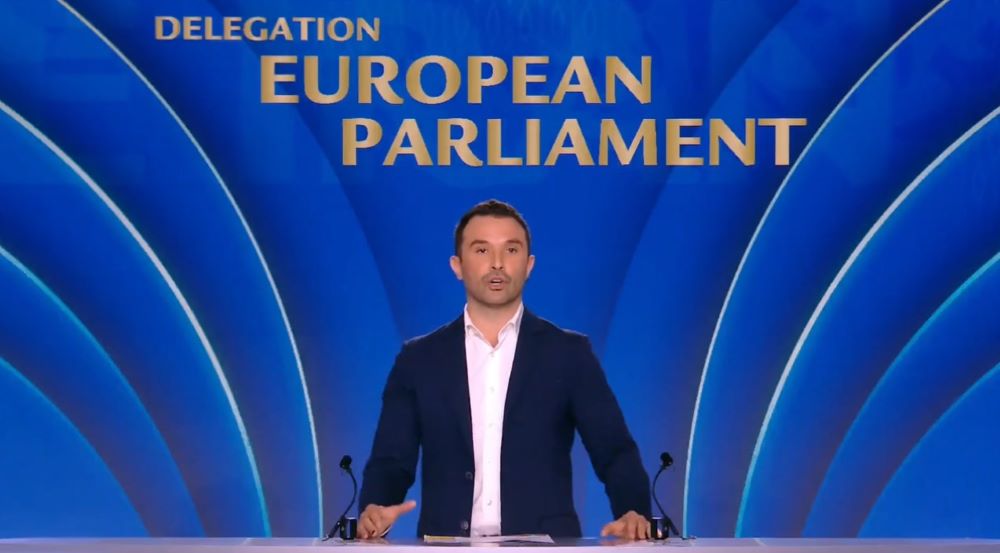
I define the resistance movement in “hope, resilience, and vision.” Hope, because we must continue to dream of a secular democracy. This dream is not new; it began in the 1950s with Mossadegh. However, in 1953, this dream was shattered by a coup d’état orchestrated by Western forces, primarily the US and British, opposing this vision. Subsequently, history reveals a tyrannical rule under the Shah, leading to the 1979 revolution and the current consequences under the mullah regime. Hope is crucial to sustaining the dream of building a secular democracy.
Resilience is equally important. Thousands of people inside Iran risk their lives to defend this dream. In the diaspora, the movement is fueled by tremendous efforts, often voluntary, by countless Iranians.
However, hope and resilience alone cannot suffice without vision. Vision is essential for establishing a smooth transition and avoiding a power vacuum when the revolution finally occurs in Iran. The 10-point plan proposed by Mrs. Rajavi is critical in this regard and should be considered by politicians, especially EU legislators. I emphasize the roles of women and youth outlined in this plan. Point 9, particularly relevant in today’s context, addresses environmental concerns amidst ongoing elections.
As I conclude my five-year mandate, I offer three pieces of advice to the next commissioners, EU leadership, and parliamentary colleagues:
Firstly, we must designate the Islamic Revolutionary Guard Corps (IRGC) as a terrorist organization within the EU. Without this action, we inadvertently support the mullahs’ regime and alleviate the necessary pressure on them.
Secondly, while not solely an economic issue—given the modest €5.2 billion trade volume between the EU and Iran in 2033—we must cease trading with Iran. The current trade balance, exporting €4 billion more than importing €1 billion, reflects a cynical stance. To uphold coherence with our foreign policy and support freedom in Iran, trading with the oppressive regime must cease.
Thirdly, we must politically recognize the National Council of Resistance of Iran (NCRI) as the sole entity capable of guiding Iran’s transition to a secular democracy.
In conclusion, through hope, resilience, and a clear vision articulated in Mrs. Rajavi’s plan, we can support Iranians in achieving freedom and establishing a secular democracy.
George Sabra, Member of the Syrian Democratic People’s Party
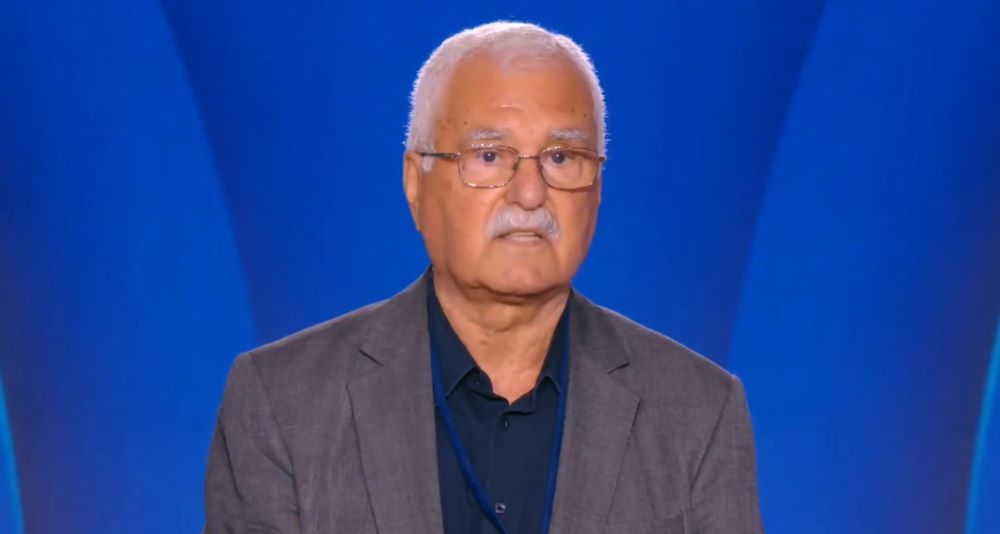
The people of Iran managed to overthrow the Shah dictatorship. It contributed to peace and stability in the region. But the mullahs stole the revolution and brought Iran and the entire region into instability and conflict. Theocracy sheds blood. The regime and its militias and the IRGC took over the lives of people by violence and mass killing and took over all aspects of the live of the Iranian people.
The regime then spread its violence across the region, destabilizing the region through proxies and militias in different countries in the world. They destabilized the situation in the neighboring countries. They defend the Assad regime. They are responsible for the mass killings and destruction, caused mainly by Qassem Soleimani.
The regime is destabilizing the area more and more. The entire world is increasingly angry. Iranians reject the regime through continuous uprisings. The Iranian people are calling for regime change.
The PMOI and NCRI are playing a vital role in these uprisings. They will continue until the regime is overthrown. Regime change is a regional and international necessity. In the past, the appeasement policy with this regime has led to more dictatorships because the Iranian regime is taking care of them through its militias. We salute the Iranian people and their uprisings and the sacrifices they make. We salute the sacrifices of the peoples of the region. Salute to the Syrian people and revolution for standing against the Assad regime.”
Abdeh Al-Moghalas, Undersecretary of the Ministry of Information of Yemen
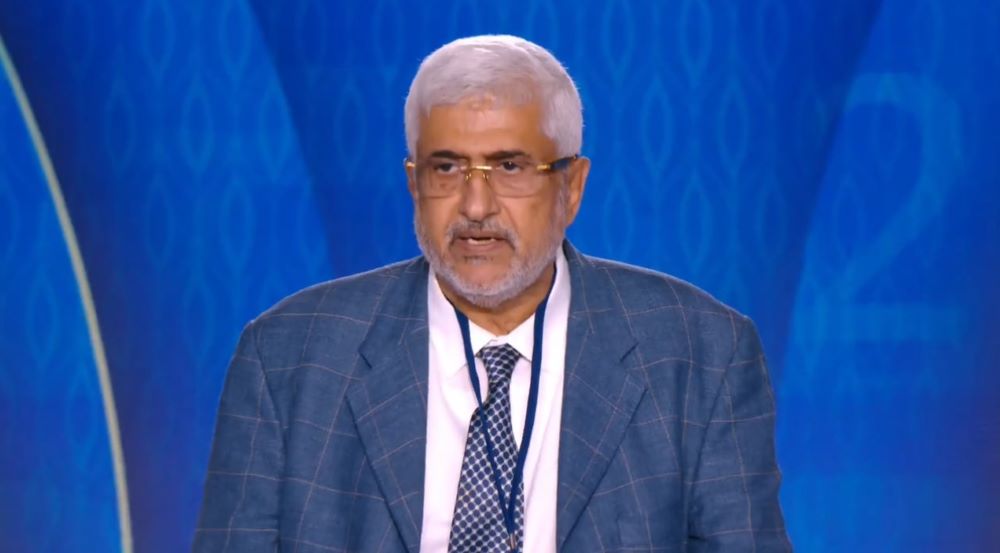
Your movement has been resilient for decades. You have fought against the theocracy that all the world suffers from. We are suffering from the regime’s crimes and the terrorist Houthi group that has been destroying our country for their own interests. The Houthis and the regime are not supporting the Palestinian people. They are only following their own interests.
The Iranian regime has been using the Palestinian cause for their own advantage. They have cause damage to this cause and divided the Arab people. The Iranian regime does not represent Islamic values. They destroyed the economy of Iran and pushed the majority of the Iranian people into poverty.
We support the uprisings of the people of Iran to topple this regime. We support Maryam Rajavi. She is the perfect alternative to this regime. She has international support across the world. Her ten-point plan has major support. She promotes peace, which cannot happen under this regime.
We call on the international community to support the NCRI and to proscribe the IRGC as a terrorist group as the Houthis. They must support the legitimate government of Yemen and the Iranian Resistance. We must stop the appeasement policy of supporting the mullahs’ regime.
Behrang Borhani
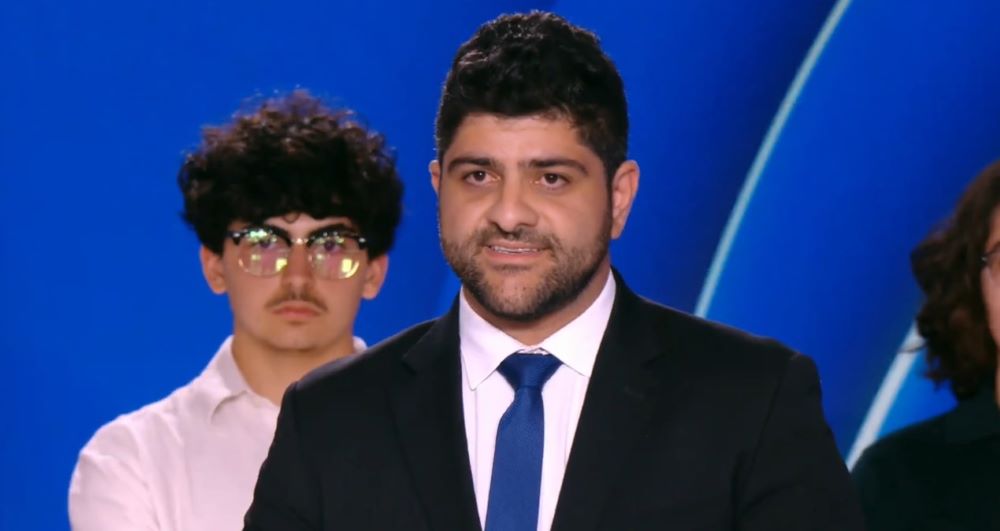
Today, I stand before you not only as a second-generation Iranian American but also as a witness and participant in a movement that has profoundly impacted my identity, the PMOI.
It was during a transformative journey to Washington, DC nearly 15 years ago where I truly connected to the movement that my parents fought so bravely and passionately for. I immersed myself in the endeavors of the PMOI, working with the media and legislative bodies. I learned intimately about the sacrifices of PMOI members—the tortures, imprisonments, the mass executions of the 1980s, and the devastating 1988 massacre.
These weren’t just stories from a distant past; these were poignant narratives of resilience and bravery echoed in the lives of those who had lost loved ones at the hands of the regime’s cruelty.
We reject all forms of dictatorship, whether religious or monarchical, and we support a free, democratic, and secular Iran. Working with the media, I confronted relentless attempts by the media to malign the PMOI, including ridiculous stories of child soldiers, all designed to isolate and discredit the movement. Yet with each false claim, my resolve only strengthened. It fueled my commitment to truth, and to honoring the sacrifices of those who came before us.
To the architects of oppression in Tehran, hear this: No amount of falsehood can dampen the spirit of this generation. Across continents, young Iranians are rallying to the ideals of the PMOI, inspired more with every attempt to undermine us. As the renowned writer and politician Victor Hugo once said, “Nothing is more powerful than an idea whose time has come.”
The era of a democratic and secular Iran is upon us, and along with the PMOI, NCRI, and the valiant youth in Iran, we are unstoppable.
Alia Amanpour

I stand before you as a student activist, as an Iranian American, and as a voice among the many inspired by the brave resistance units in Iran. I stand before you as the granddaughter of a martyr of the PMOI, a freedom fighter who paid the ultimate price so that his children and grandchildren may one day return to their homeland without fear of oppression or violence. Let his martyrdom and that of hundreds of thousands of others be a symbol of light and of the day meant to awaken our people.
As a student in the United States, where the pursuit of education often seems like a linear path towards personal success, we sometimes forget that being a student carries profound potential for collective change and action. It is in this spirit that we, as student activists, find deep resonance and solidarity with the brave resistance units in Iran, especially the youth.
To be a student activist is to engage in a struggle that extends far beyond the confines of the classroom. It is recognizing that our quest for knowledge is deeply intertwined with the responsibility to advocate for justice and freedom. As we study the pages of history, we see countless instances where the spirit of youth has ignited movements, challenged injustices, and shaped the destiny of nations. The Iranian youth are no exception to this.
We are witnessing history being written once again by those who refuse to accept oppression and tyranny. I look to each and every student in Iran as my colleague, classmate, and comrade. To the brave students in Iran, I see you. I am inspired by you every day of my life, and I will never stop fighting with you.
For us, as student activists outside of Iran, the struggle within Iran is not a distant echo. It is a call to action. It compels us to consider our place in the global arena. It compels us to use our platforms, however small, to uplift the very voices that the authoritarian regime attempts to stifle and silence.
In our universities, we are equipped with the ability to mobilize with knowledge. Let us use this privilege to support the voices on the front lines fighting for their humanitarian rights. Watching the resistance units in Iran is bearing witness to the power of collective action. Despite the harshest of circumstances, they continue to organize, resist, and envision a future where justice prevails.
This is a powerful reminder that change comes from the courage to dream and the audacity to demand it. The fight for freedom in Iran is interconnected with the fight for freedom everywhere. A free Iran is deeply intertwined with a truly liberated Palestine, Yemen, Syria, Iraq, Lebanon, and all other places the Iranian regime has exploited through proxy wars to spread terror. A free Iran is essential to a truly liberated Middle East.
Kimo Sasi, former minister and MP from Finland
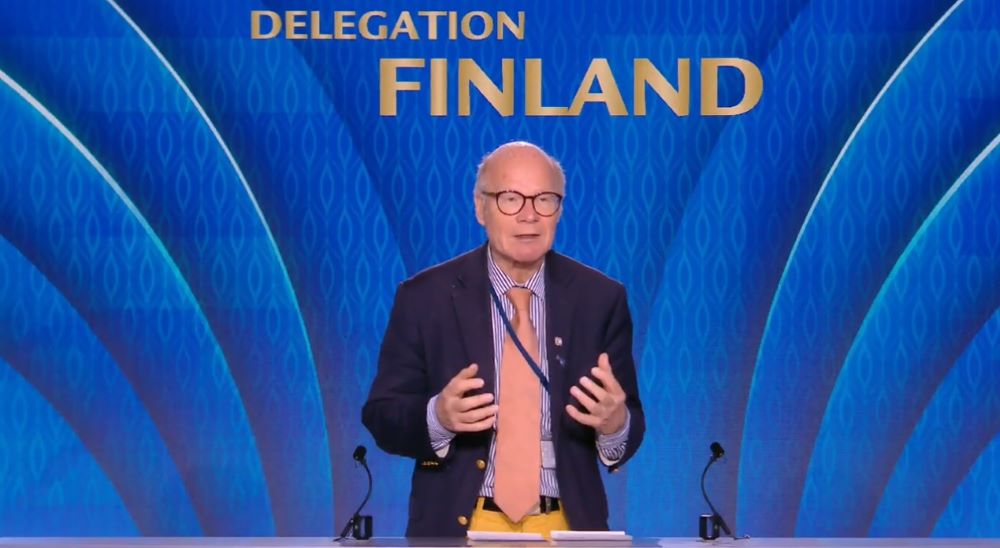
The Iranian regime is not only brutal to its own people in Iran but also poses a great threat to European citizens. The regime has begun employing new hostage-taking and blackmail tactics. Two years ago, Iranian security arbitrarily arrested a Swedish European Union diplomat in Iran. Their sole purpose was to exchange him for Hamid Nouri, whom a Stockholm court had convicted of crimes against humanity in Iran, the gravest offense in the Penal Code.
We must find ways to halt these hostage-taking practices. It’s crucial that the Iranian leadership understands there is no escape from accountability for human rights violations—they will face justice in courts around the world sooner or later.
The Iranian regime continues to perpetrate terrorist acts within the European Union. In November last year, there was an assassination attempt on Alejo Vidal-Quadras, a dear friend and former Vice President of the European Parliament. Additionally, there was a foiled bombing plot at the Free Iran World Summit in 2018.
We must take decisive action to prevent such incidents. Iranian terrorism within EU borders cannot be tolerated.
With the European Union having appointed a new High Representative for Foreign Policy, a strong leader, I hope she takes a much firmer stance within the Commission against Iran.
Terrorist actions must come at such a high cost that the Iranian regime is unwilling to pay. What could this entail? Firstly, the IRGC must be listed as a terrorist organization, as Canada and the United States have already done. Furthermore, the European Union should consider closing Iranian embassies, which serve as operational centers for terrorism and intelligence gathering against dissidents.
Moreover, if Iran persists in its activities within the European Union, deeper economic sanctions are necessary. We can isolate Iran significantly if these policies are not halted.
Now turning briefly to the parliamentary and recent presidential elections in Iran—they were spectacles, not genuine democratic exercises. In Iran, half of the population, namely all women, cannot even run for president. All six presidential candidates were former Revolutionary Guard officers, and there were no moderate candidates. It’s questionable whether the European Union can recognize these elected officials as legitimate counterparts for negotiations.
This is crucial because Madam Rajavi’s ten-point plan aligns with European Union values. As we all know, dictatorships inevitably collapse, and we are committed to ensuring free elections and a free Iran.
Marcin Święcicki, former Mayor of Warsaw
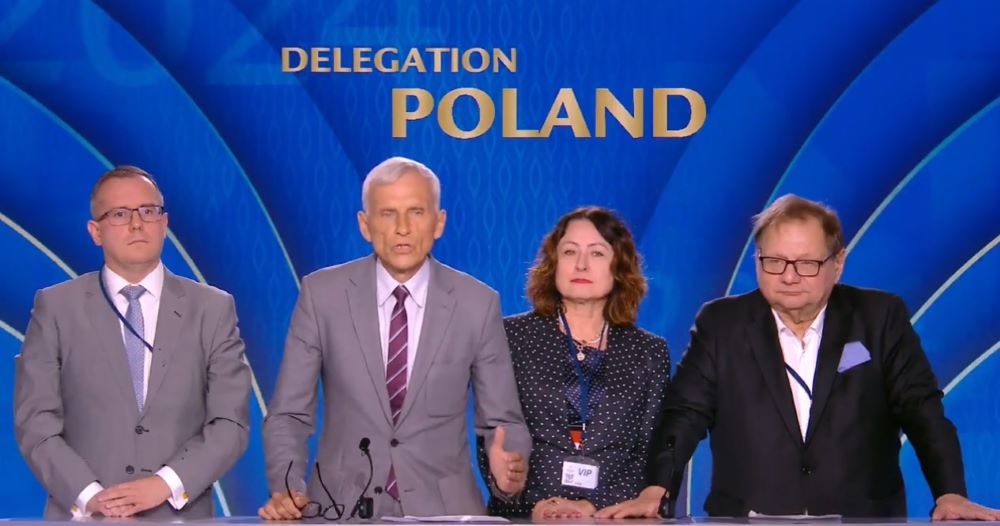
We had a chance today to listen to the 10-point plan of Mrs. Rajavi that promises prosperity, freedom, democracy, and the abolition of the death penalty in Iran, which will bring more stability to the region. This plan fully complies with universal human values and the UN Declaration of Human Rights. So one might ask, why aren’t Western countries fully supporting this plan or the opposition in Iran? Why are there still various deals being made?
Mrs. Rajavi argues that we should cease these dealings because this regime will not bring any liberalization to Iran. We must stop deceiving ourselves. We must support the opposition movement for regime change. We must impose sanctions on the regime. The IRGC must be designated as a terrorist organization.
We must establish an international criminal court to prosecute the perpetrators of these crimes. Additionally, we must pay attention to the axis of evil comprising Iran, North Korea, Russia, and China, which are supplying arms and drones. Imagine what would happen if they coordinated attacks on Western democracies.
Appeasement doesn’t work. Look at what is happening with Ukraine. Thanks to the determination and sacrifice of your movement, Iran will be free.
Ryszard Kalisz, Former Minister of Interior and Administration of Poland
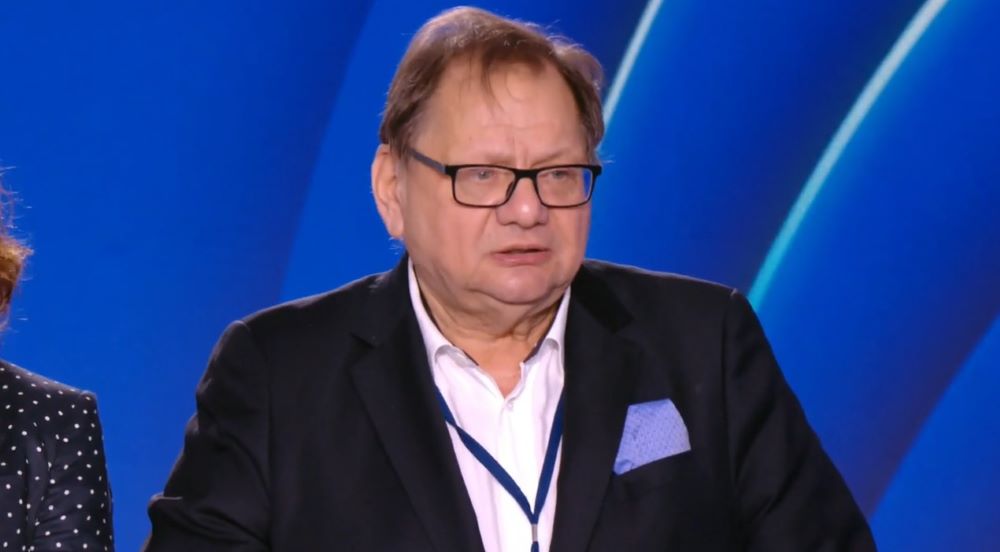
The people of Iran have endured tyranny for too long. We must speak for all democratic states. No economic relations with Iran. No legal relations with Iran. More sanctions for Iran. Iran is a dictatorship. Every regime collapses.
Dictatorship in Iran will collapse as well. But today, any democratic country cannot help the mullahs regime in Iran. It is shameful and deeply troubling that democratic nations continue to appease the regime. The Swedish government released Hamid Noury, allowing him to return to Iran.
The same situation occurred in Belgium. The Belgian government released Assadollah Assadi and allowed him to return to Iran. No cooperation with the regime in Iran because aiding the regime opposes freedom and democracy worldwide.
Today, the NCRI represents the Iranian people. The 10-point plan is a vision of hope and a pathway to a future where the Iranian people can live in freedom, peace, and democracy. It is a concise blueprint for freedom in Iran that respects every citizen and upholds the rule of law.
Let us send a message to the regime. The international community will not tolerate your crimes. We support the struggle for a free, democratic, and secular Iran.
Janice Chetcuti, Member of the Parliament of Malta
One very important mission unites us here today: the search for peace, serenity, and the universal practice of one of the most fundamental rights—the right to life. The absolute right to live peacefully, surrounded by loved ones, without fear of anything or anyone. Together, our voices will resonate this unequivocal message.
Let us unite for love and peace, dedicating our attention, empathy, and actions to stop all forms of abuse, violence, oppression, and brutality. As a Maltese Member of Parliament, and on behalf of the majority of MPs in Malta, we express our unequivocal support for the Iranian people’s decade-long resistance for a free, democratic, and secular Republic of Iran.
Even one day of such turbulent pain is unacceptable for any fellow human being to endure, let alone these long, dreadful years. Nonetheless, these people have shown unwavering resilience, tirelessly fighting for a better tomorrow for generations to come.
The Iranian people have repeatedly rejected the regime through coordinated boycotts of sham elections, as we witnessed just last week. Their demands are clear: the regime is illegitimate and must go. This dictatorship must end, and as they fight, these people will reclaim what is rightfully theirs—peaceful coexistence with their loved ones.
The turmoil following the death of Ibrahim Raisi has left the Supreme Leader desperate to find a replacement. The presidential election is merely a tool to mask the ongoing brutality.
The regime is weak, clinging to power through suppression and terrorism, fabricating false claims against the opposition to justify its actions. At this critical moment, the people of Malta stand in solidarity with your movement as a viable alternative to the Iranian regime. We stand with Iranian women who lead this resistance despite facing extreme misogyny and repression, persistently advocating for freedom and equality over four decades. Women in the PMOI and NCRI have assumed leadership roles, and we admire their bravery and sacrifice for the liberation of all Iranians.
We condemn the gross human and women’s rights violations and endorse Maryam Rajavi’s ten-point plan for a free and democratic Iran.
We call on the international community to recognize this legitimate alternative to the current regime and support your fight for justice, including the blacklisting of the IRGC. We are proud to stand with you to help the Iranian people achieve the freedom, democracy, and human rights they deeply deserve.
Nargis Nehan, Former Minister of Mines and Petroleum of Afghanistan
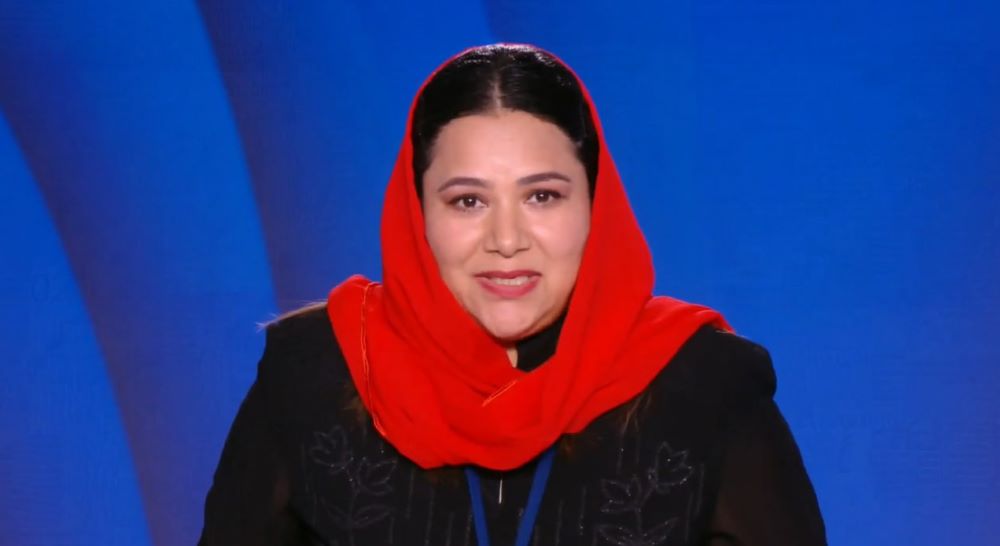
I express my gratitude to Madam Mariam Rajavi and her team for inviting me to this important gathering. What I find extremely impressive about this gathering is the presence of distinguished guests from around the globe, coming from diverse social backgrounds, speaking different languages, following different faiths, and having different skin colors. Despite this diversity, they come together under one roof to demonstrate unity and stand for principles that uphold and embrace equality, freedom, and liberty.
Dear fellows, I must take this opportunity once again to remind you all that there is systematic and institutionalized discrimination against women in Iran and Afghanistan that requires our attention, support, and action.
But I also have to remind you that we are witnessing a backlash against women’s rights globally. There is a backlash against democracy and against all the values we have fought for over centuries and decades. We see declines in human rights, democracy, and the values we have worked hard to uphold in our global community. At the same time, we see the rise of extremism, fundamentalism, and authoritarian regimes worldwide.
The fundamental question we must ask ourselves, our governments, and policymakers is why the world is so receptive to extremism and fundamentalism when democracy has so much to offer. Why relegate women to secondary citizenship when they can contribute equally to the development of their society and economy? The answer is simple: extremist groups are dedicated to their mission and do not compromise their ideology, while proponents of democracy often compromise their values for political and economic interests. If we see the rise of extremism today, it’s not because extremist groups are stronger, but because our resistance to democracy and equality has weakened and our values have been compromised, including by institutions like the UN.
Forty years ago, an oppressive regime took power in Iran. What did we do about it? We did nothing but appeasement—appeasement, and more appeasement. Just three years ago, peace deals were signed with the Taliban, most of whom are on the UN sanction list. It was the US and the international community that came to Afghanistan, promising to liberate Afghan women. But in 2021, they forgot about Afghan women and their rights because it was no longer deemed important to them. When we raised concerns about the withdrawal from Afghanistan, we were simply told to accept the reality of the Taliban.
This is the reality we face in Afghanistan today. What is highly frustrating is that despite these harsh realities, women are increasingly marginalized in society. Women are disappearing from offices, their voices silenced, and they are confined to their homes by the Taliban. Countries that talk about women’s rights, democracy, and freedom are rolling out red carpets for the Taliban, holding bilateral meetings, taking selfies, and posting on social media.
Today, the United Nations and many countries are meeting with the Taliban in Qatar. But how did they manage to get the Taliban to the negotiating table this time? By excluding women from the meetings, removing civil society, and sidelining women’s rights and human rights agendas.
You may wonder, given all these frustrations and complaints, how I can stand before you today and speak. Let me tell you, my fellow brothers and sisters, it is the resilience and resistance of the women of Iran and Afghanistan that give me hope and energy to stand here before you.
Regardless of who stands with us or not, we will continue our fight because we know we are on the right side of history. I would like to conclude with three recommendations: first, please support Madam Rajavi’s 10-point action plan if you truly want to secure a better future for Afghanistan. Second, please join our international campaign for the recognition of gender apartheid in Afghanistan and Iran.
Farideh Sedighi
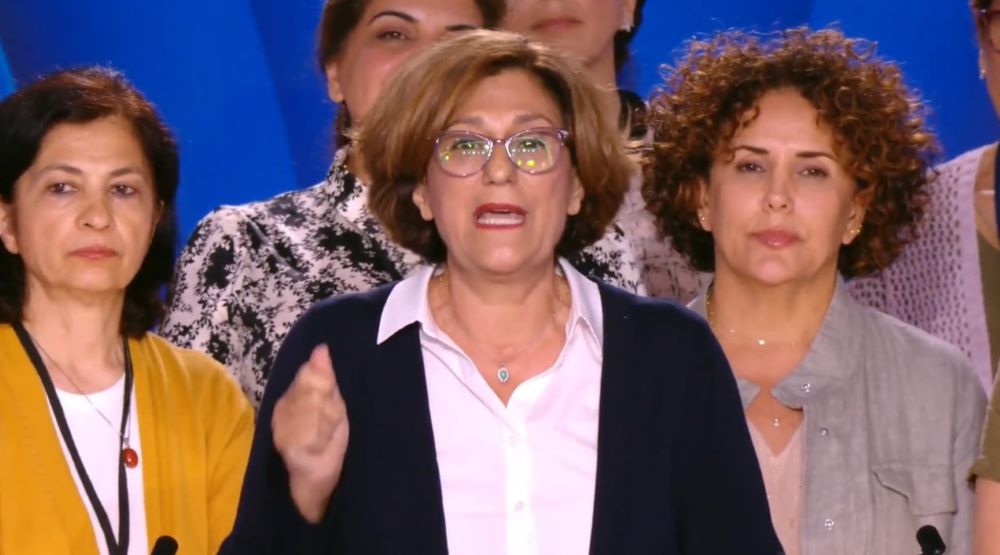
I’m proud to have been a supporter of the PMOI for the past four decades. I still vividly remember the days of the 1979 revolution when the people overthrew the Shah regime. However, Khomeini hijacked the revolution and imposed misogyny through compulsory veiling and other forms of oppression targeting women, political forces, religions, and ethnicities.
Only the PMOI stood up against the regime. When compulsory veiling was enforced, PMOI women bravely resisted and shielded others from the regime’s forces. Many of them were injured in clashes with regime forces.
The PMOI’s resilience inspired and drew me to their cause, and I have supported them ever since. Over the years, the PMOI has faced numerous challenges. Their humanitarian principles and Mrs. Rajavi’s slogan ‘we can and we must’ have empowered Iranian women.
I am proud to be part of a movement led by a Muslim woman fighting against Islamic fundamentalism. She has shaken the regime’s foundations with her slogans: no to forced veiling, no to forced religion, no to forced rulers. Despite being a devout Muslim, she advocates for freedom of dress for all women.
The NCRI upholds the principle of separating religion from state and opposes discrimination based on religion. For six decades, the PMOI has resisted the regime not for power but to sacrifice everything for the liberation of the Iranian people.
Hannaneh Amanpour
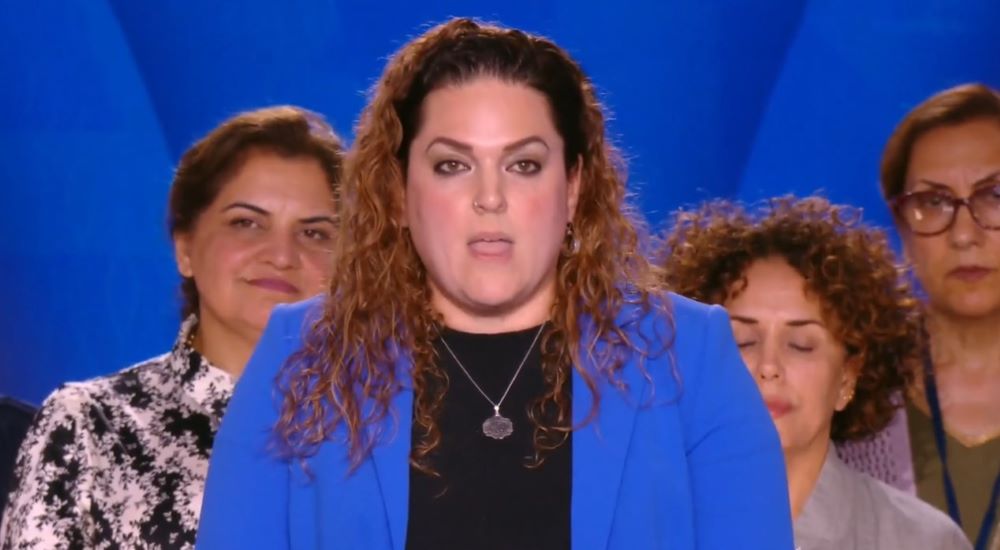
In his fight for Freedom and Justice, my father was murdered by the Khomeini regime in 1988 when I was only 5, an event that would ultimately form the lens with which I have lived the rest of my life.
The truth is that I was only able to understand my father’s willingness to sacrifice everything in the name of Allah and humanity because I had the unique opportunity of growing up in Ashraf City.
That is where I first learned what it truly meant to give your life for something bigger. When I first learned what it truly meant to fight for freedom and equality at all costs, and the extraordinarily heavy price that the MEK has paid in the name of freedom.
Amongst my peers in Ashraf, the loss of my father was a tragedy all too common. Our tolerance for loss and sacrifice was much bigger than our tender years. But that burden rests solely on the Khomeini regime, not the MEK.
In his famous speech in 1980, referring to the young people risking their lives in the name of freedom, Brother Masoud Rajavi once said, ‘We are not the children of the wealthy and privileged, we are the children of pain and poverty.’
The regime’s attempt to demonize the MEK at every turn is nothing new, and we confront its deceitful campaigns as often as we confront its brutality, because how else can a brutal terrorist regime maintain its grasp on power without smearing and distorting the truth and the light that is the PMOI.
The regime’s latest plot, spearheaded by Iran’s Ministry of Intelligence and Security, is rife with false allegations regarding the children of Camp Ashraf and is simply more of the same. I, and many of my friends in the audience today, are living proof that what they claim are nothing short of lies.
The saga of the transfer of children from Ashraf following the onset of the first Gulf War and the terrible hardships endured by so many of our parents were all part of the heavy price paid by the MEK in their fight for freedom.
I can say with absolute certainty that their sacrifice made it possible for me and others like me to stand in front of you today, an accomplished attorney, a mother to three beautiful children, and able to carry on the fight for freedom and democracy.
The regime’s perverse attempt to diminish that sacrifice is their admission that they are facing unprecedented anger from their own people and feel most threatened by the MEK.
So I am here to say: not in my name. You will not distort my story. You will not insult my father’s sacrifice, and you will not exploit those like me to further your message of hate and oppression. The sacrifices made by the men, women, and children of the MEK are a testament to our commitment to humanity and a free Iran, one which we will not apologize for and one which we will not back down from until we are standing in the free streets of Iran.
Maximiliano Ferraro, Member of the Chamber of Deputies of Argentina
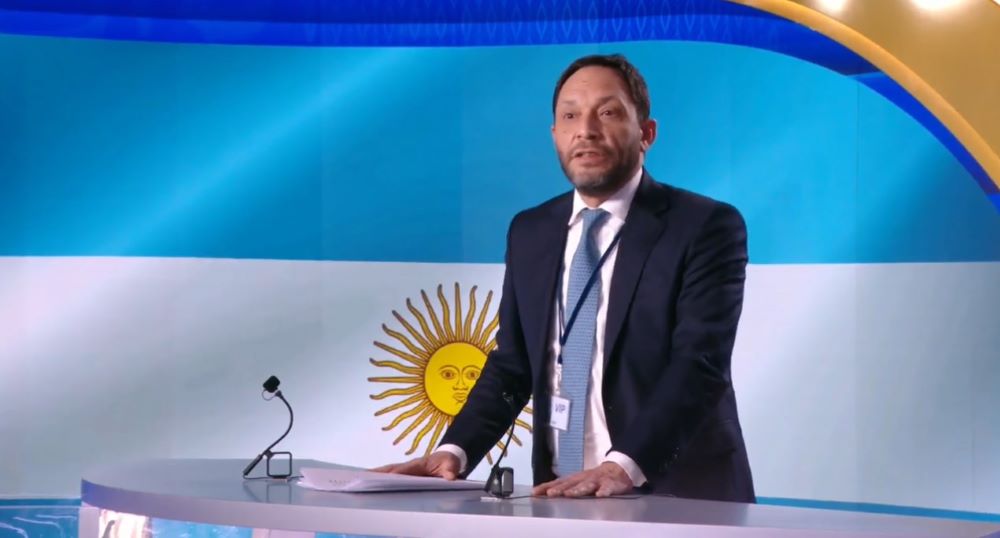
We salute the Iranian Resistance. Argentina is 14,000 kilometers away from Iran but has not been spared from the terrorism of the regime.
In 1994, the regime detonated the AMIA center. 85 people were killed. It was one of the biggest terrorist attacks in the history of Argentina. In 2013, a memorandum between Iran’s regime and Argentina tried to cover up the crime.
Alberto Nisman tried to investigate the crime. I would like to thank Maryam Rajavi for considering DA Nisman as a martyr of the Iranian Resistance. We cannot remain silent. The regime exports terrorism and fundamentalism not only to the Middle East but also to Latin American countries. The struggle of Maryam Rajavi and the Iranian people motivates us to not remain silent and to promote freedom and justice.
Nasser Sharif
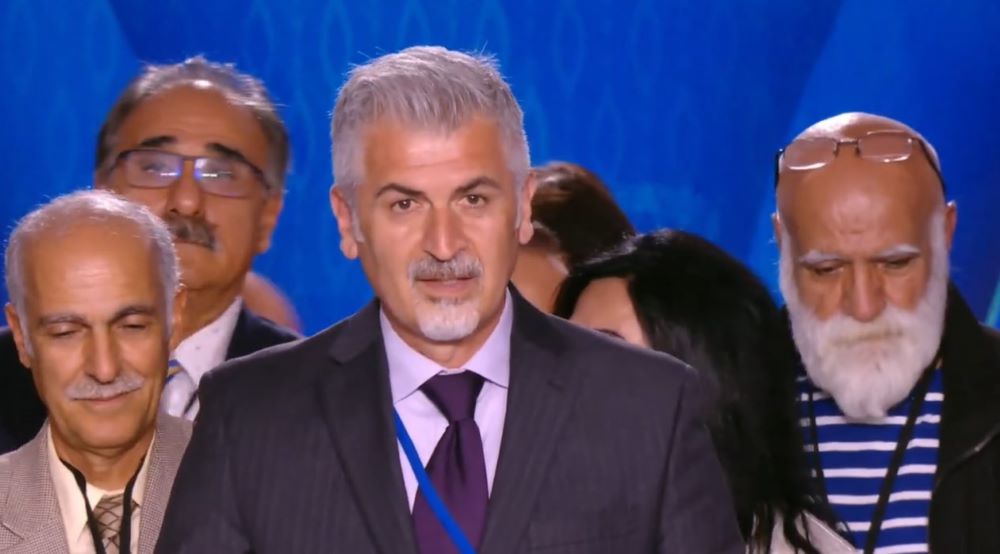
I want to salute the people of Iran who boycotted the sham elections and gave a vote of No to the regime. At the same time, we witnessed the great rally of the Iranian Resistance in Berlin to defend the democratic alternative to the regime.
This demonstration showed that the regime is at a dead end and the alternative is making progress. The regime is terrified of the PMOI. This organization is the only democratic alternative, organized, and has leadership and forces on the ground in Iran. In addition to the arrests of members and supporters of the PMOI, the regime is progressing its demonization against the Iranian Resistance through creating fake alternatives and spreading false information about the movement.
Thanks to the leadership of Maryam Rajavi, the so-called alternative of the remnants of the Shah regime failed. With the death of Raisi, the prospect of change is greater than ever. And the regime is resorting to new methods against the democratic alternative, including efforts to bring together the remnants of the Shah regime and the so-called reformist current within the regime.
The execution of more than 120,000 PMOI members, including the massacre of 30,000 political prisoners in 1988, is the price that this movement has paid for freedom.
The expansion of Resistance Units within Iran confirms the vitality of this resistance movement. We reject the appeasement policy toward this regime. This resistance movement will rely only on itself to obtain freedom. We do not want help from any power. Just stay out of our way. We have the right to fight against the IRGC. You will see how easily we will overthrow this regime.
Dr. Firouz Daneshgari
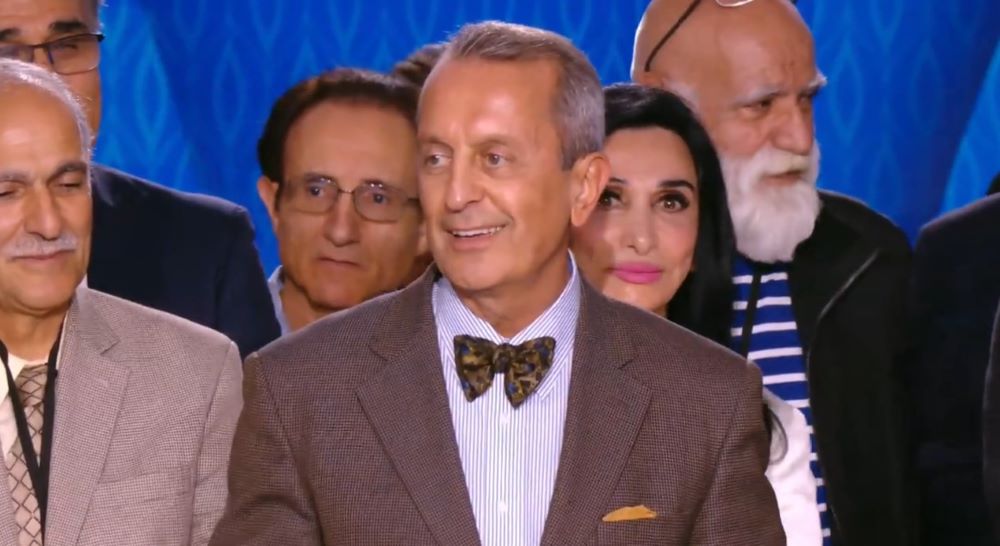
Today, echoing your words, Mr. Secretary, we acknowledge the most organized resistance in the past 120 years of Iranian society, functioning like a shadow government. This promises a peaceful and prosperous future for a free Iran under Mrs. Rajavi’s 10-point plan.
This day marks a stark contrast between a regime whose sham election was boycotted by the overwhelming majority of Iranians and, just a day later, a massive representation of Iranians spanning at least three generations. A transgenerational group gathered in Berlin to express their support for the only viable alternative in Iran, led by Mrs. Rajavi.
On behalf of millions of Iranians both inside and outside Iran, and all those friends and classmates of mine who are not here with us today, I simply want to say thank you, Mrs. Rajavi, for leading us to witness this day.
General Wesley Clark, Former Supreme Allied Commander Europe of NATO and US Presidential Candidate (2004)
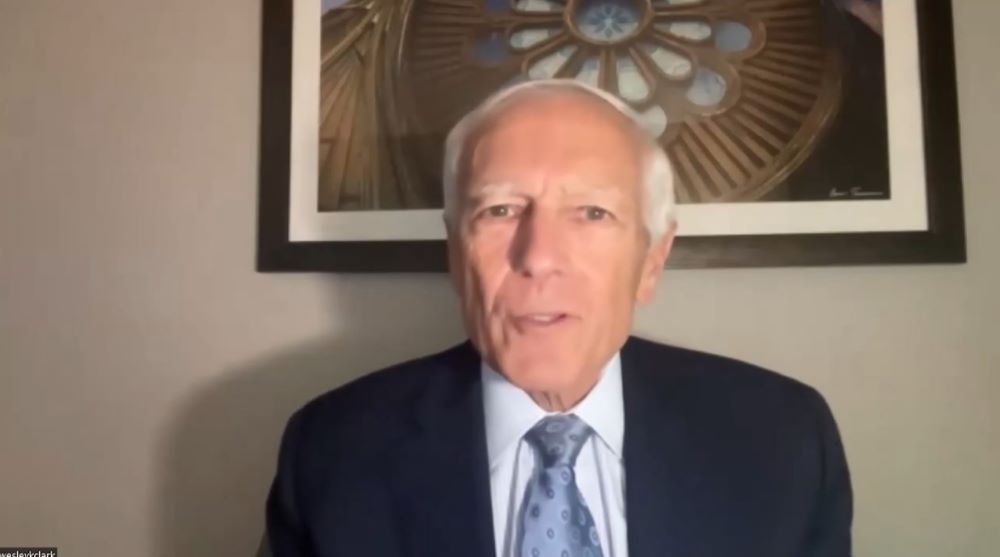
I am so thrilled to be with you this evening. I wish I could be there in person because whenever I’m with you, the power of your inspiration is so great. It’s so wonderful to feel the determination, courage, loyalty, and perseverance that you’ve had for these many years as you struggle against the tyrannical regime in Tehran.
It’s just a pleasure to be with you tonight, and I thank you for that. I’ve watched your struggle. I’ve watched it with great admiration, and your courage is so powerful. The statements of Mrs. Rajavi, the platform for democracy, are powerful, good, and right. And now, right now is the time to move forward to return the government of Iran to the people of Iran.
There is nothing that gives this government in Iran legitimacy. The elections in March, with a 7% turnout, and the second round in May, according to my figures, had a 2% turnout.
And then there was the crash, supposed crash accidentally that killed President Raisi. My friends told me it was probably sabotage. Other helicopters were in the area. They could have stopped. They didn’t. The area was closed off.
They gave it plenty of time. It was a power struggle within the hierarchy of the Iranian leadership to see who would replace Ayatollah Khamenei. That’s what it was about, as far as I can determine, a total lack of legitimacy in the succession issue and in this presidential election with the candidates? Not one real distinction between them. All members of the same murderous elite that have held the people of Iran in oppression for four decades.
It’s time for the whole crowd to go. There is no legitimacy in this government. And this is the time for the people of Iran to speak out and to move forward, and you will. This is a government that seeks nuclear weapons, nuclear weapons at a time when the entire Middle East is in crisis.
The crisis extends first in the Red Sea, where the regime in Iran has backed Houthis who are interrupting shipping, raising insurance rates, sinking ships, causing danger, wrecking economies.
And that’s bringing chaos to the region. That’s not a good thing. That’s a terrible thing that Iran’s doing. And then there’s the actions of Iran to have promoted Hamas. They’ve armed them, supported them, trained them, organized them. That’s not a good thing. Tens of thousands of innocent people have died as a result of Hamas’s deliberate plan of terror.
And then there’s Hezbollah, also funded, organized, reporting to Iran in control of South Lebanon, control of most of the Lebanese government, armed and ready, seeking war, but do not quite yet. Why not quite yet? Well, because Iran is not quite ready to expose the fact that it has nuclear weapons or is about to have nuclear weapons. It needs a little more time to be ready.
These are not leaders of courage. These are leaders who live by torture and terror. That’s the way they live, that’s the way they govern, and that’s why they’ve got to go.
In Syria, Iranian terrorists have kept Bashar al-Assad’s regime in power, and they’ve also put it in extreme danger, and they’re contributing to bringing war to the Middle East. In Iraq, Iranian terror groups lurk within the Iranian-sponsored militia that the Iraqi government has had to accept and more or less depend on in certain circumstances, and they’re waiting to unleash their terror.
All over the region, at every turn, Iran is engaged in its self-declared war and it’s continued to express its determination to attack and destroy the state of Israel. With nuclear weapons, Iran is even more dangerous, more unpredictable.
And how can a state like this be tolerated by other states in the region? Sure. It has no legitimacy with its own people. It has no legitimacy. It should have none with states in the global community. Why would we treat a government like that with as a legitimate government? We shouldn’t.
And we will continue to press that the government of Iran be delegitimized. But ultimately, the fate of that government depends on you, the people of Iran. You must overthrow that government. You can overthrow that government. And you will overthrow that government. You’ll replace it with the democratic government. With a platform outlined by President-elect or Javi, there’ll be freedom, there’ll be tolerance, there’ll be respectability of Iran, there’ll be honor paid to the great civilization of Persia and all of its history.
It’s time to bring Iran forward, but not with this government. You’ll overthrow this government by your patient support of the oppressed. You’ll do it by undermining the Basij and the other instruments of terror inside Iran. You’ll do it because it must be done. You’ll do it by appealing to the consciences in the world.
After years of failed elections, the probable assassination of a president is part of an internal power struggle. Surely the people of the world will listen to the voices of the loyal, courageous people of Iran represented here tonight. We must say to these governments, no more funding the government of Iran, no more invitations to international conferences, no more participation in international organizations, no more, no more. Enough. Let Iran be returned to its people and then we can welcome Iran as a respected, responsible member of the world community.

